Are you organizing an event related to the ocean at or around COP30? We invite you to register your COP30 ocean-related events in the Ocean Events Tracker. Information gathered through the tracker will be incorporated into a calendar of ocean events accessible through the Virtual Ocean Pavilion.
This year’s Virtual Ocean Pavilion will feature a wide range of events and roundtable discussions covering topics across the ocean-climate-biodiversity nexus. Please be sure to register for the COP30 Virtual Ocean Pavilion to access the full agenda that will be available from the Event Lobby.
The 2024-2025 Report on Assessing Progress on Ocean and Climate Action (ROCA Report) will be launched during a 90-minute live event during the COP30 Virtual Ocean Pavilion. This biennial report provides an assessment of ocean and climate science, policy, and action through contributions of over 50 co-authors from organizations around the world.
 November 3, 2025 08:00
November 3, 2025 08:00 Professor Mitsutaku Makino
Professor Mitsutaku Makino Dr Emadul Islam
Dr Emadul Islam Professor Dr. V N Attri
Professor Dr. V N Attri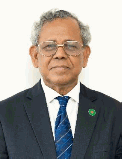 Rear Admiral Md. Khurshed Alam
Rear Admiral Md. Khurshed Alam Professor Dr. Asela K. Kulatunga
Professor Dr. Asela K. Kulatunga Dr Hussain Sinan
Dr Hussain Sinan Dr. Vijay Sakhuja
Dr. Vijay Sakhuja Dr. Nilanthi Samaranayake
Dr. Nilanthi Samaranayake Hideyuki Shiozawa
Hideyuki ShiozawaEvent Time: 8:00 - 9:30 BRT (GMT-3)
Event Organizers: Ocean Policy Research Institute (OPRI)
The Indian Ocean, the world’s third-largest ocean, is often described as the “Great Middle Bay” due to its strategic geographic position. It serves as a continuous maritime theatre essential to the security and stability of global shipping lanes and trade routes, handling more than one-third of the world’s bulk cargo and nearly two-thirds of oil shipments. This vast ocean facilitates global access to food, valuable minerals, and energy resources, while its surrounding region encompasses thirty-three nations and is home to 2.9 billion people.
The six island nations of the Indian Ocean Comoros, Madagascar, Maldives, Mauritius, Seychelles, and Sri Lanka along with island territories such as the Andaman and Nicobar Islands and Bangladesh’s Bay of Bengal coast, are acutely vulnerable to the impacts of climate change. Climate change is intensifying the vulnerabilities of these island nations, exacerbating environmental, economic, and socio-political challenges linked to their unique geographies and limited adaptive capacities.
Japan’s strategic engagement in the Indian Ocean region, particularly with the Small Island Developing States (SIDS), underscores its enduring commitment to promoting regional stability, maritime security, and sustainable economic growth. The Indian Ocean serves as a critical corridor for global trade facilitating approximately 78% of Japan’s energy imports which highlights the strategic necessity of maintaining open and secure sea lanes. Through initiatives emphasizing capacity building, infrastructure development, and regional multilateralism, Japan continues to position itself as a stabilizing force in the Indo-Pacific. Its proactive approach to addressing climate vulnerabilities and promoting sustainable economic practices aligns with the principles of a Free and Open Indo-Pacific (FOIP).
The Ocean Policy Research Institute (OPRI) of the Sasakawa Peace Foundation (SPF) has commissioned a research project titled “Enhancing Connectivity and Resilience: Assessing Climate-Induced Economic and Non-Economic Losses and Damages in the Indian Ocean Island Nations.” This initiative represents a significant step toward strengthening resilience against non-traditional security threats, exploring both economic and non-economic loss and damage associated with climate change and present practical pathways for resilience-building, including funding mechanisms and regional collaboration.
This session seeks to convene an international dialogue on the pressing climate change impacts confronting the island nations of the Indian Ocean. The session aims to foster a strategic exchange among policymakers, development partners, researchers, and international organizations to accelerate coordinated action for enhancing connectivity, climate resilience and sustainable development in the Indian Ocean Island States.
AGENDA
08:00 Moderator: Dr. Emadul Islam, Opening remarks
08:05 Professor Mitsutaku Makino, Welcome remarks
08:10 Professor Dr. V N Attri, Evolving Climate-Resilient Strategy in Andaman & Nicobar Islands
08:25 Professor Dr. Asela K. Kulatunga, Climate Change Impact of Coastal Communities and Blue Economy of Sri Lanka
08:40 Rear Admiral Md. Khurshed Alam, Integrating economic loss and damage into national policies with the objective of establishing fair and comprehensive national mechanism in Bangladesh
08:55 Dr Hussain Sinan, Evaluating Economic Impacts of Sustainable Tuna Fisheries Management Amid Climate Change Challenges
09:10 Panelist: Dr. Vijay Sakhuja
09:17 Panelist: Dr. Nilanthi Samaranayake
09:25 Mr. Hideyuki Shiozawa, Closing remarks
ORGANIZER:
Ocean Policy Research Institute, The Sasakawa Peace Foundation, Japan
 November 3, 2025 10:30
November 3, 2025 10:30 Dr. Matt Frost
Dr. Matt Frost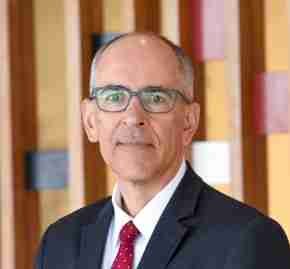 Ambassador Carlos Márcio Bicalho Cozendey
Ambassador Carlos Márcio Bicalho Cozendey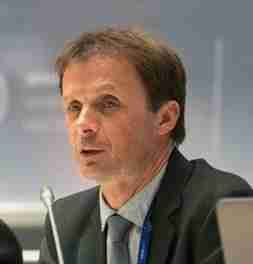 Mr. Ulrik Lenaerts
Mr. Ulrik Lenaerts Dr. Marinez Scherer
Dr. Marinez Scherer Ms. Luz Gil
Ms. Luz Gil Ms. Anna-Marie Laura
Ms. Anna-Marie Laura Prof. John Siddorn
Prof. John Siddorn Mr. Will Steen
Mr. Will Steen Ms. Erinn Bell
Ms. Erinn Bell Ms. Siena Zisa
Ms. Siena ZisaEvent Time:10:30 - 12:00 BRT (GMT-3)
Event Organizers: Global Ocean Forum & Plymouth Marine Laboratory
COP30 will mark the completion of the first full cycle of the Paris Agreement. Implementation must now be the priority. From Blue NDCs and finance to the Ocean Dialogues and adaptation targets, ocean-climate action must move from talk to implementation, with transparency, accountability, and equity at its core.
This event features speakers representing government, intergovernmental, and civil society organizations who will be speaking on what’s to come for the ocean community at COP30 and will provide a preview of the COP30 Virtual Ocean Pavilion and of ocean events at COP30 more generally.
AGENDA
10:30 Moderator: Prof. Matt Frost, Welcome and opening remarks
10:35 Ambassador Carlos Márcio Bicalho Cozendey and Mr. Ulrik Lenaerts, From Dialogue to Decision: Shaping Ocean Outcomes at COP30
10:49 Dr. Marinez Scherer, From Ambition to Action: Implementing Ocean Commitments at COP30
10:56 Ms. Luz Gil, Advancing the Ocean Action Agenda at COP30: Ocean Breakthroughs, Ocean Action Day, and Non-Party Engagement
11:03 Ms. Anna-Marie Laura, Friends of the Ocean and Climate: Advancing Ocean-Climate Action at the UNFCCC and Other International Fora
11:10 Dr. John Siddorn, Accelerating Implementation: How Science Can Catalyze Urgent Action
11:17 Question & Answer with attendees
11:37 Mr. Will Steen, Ms. Erinn Bell, and Ms. Siena Zisa, The Virtual Ocean Pavilion at COP30: Connecting All on Our Incredible Blue Planet
11:47 Question & Answer with attendees
11: 55 Prof. Matt Frost, Wrap-up and closing remarks
ORGANIZERS: Global Ocean Forum and Plymouth Marine Laboratory
 November 3, 2025 13:00
November 3, 2025 13:00 Cymie Payne
Cymie Payne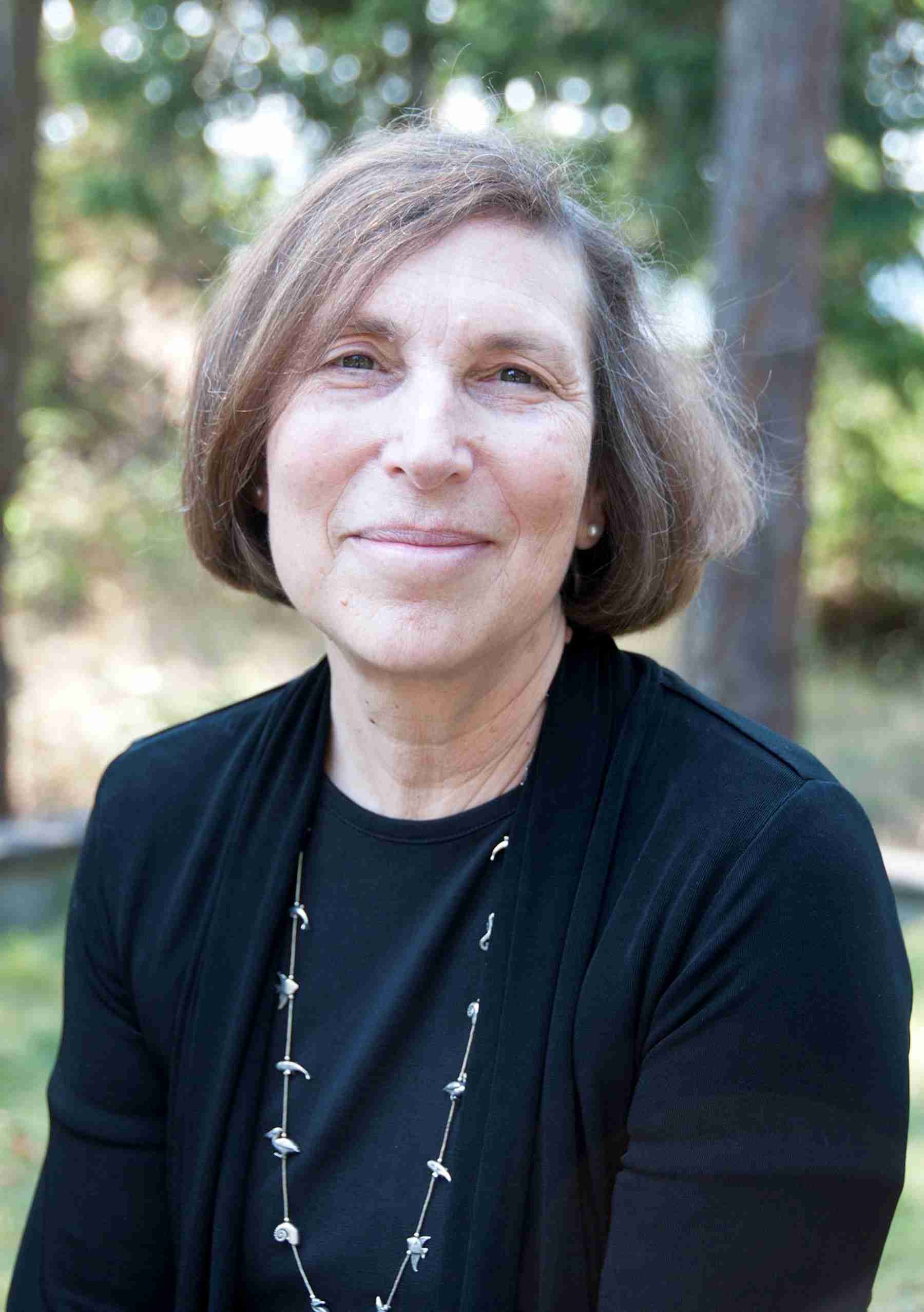 Dr. Lisa Levin
Dr. Lisa Levin Dr. Erik Cordes
Dr. Erik Cordes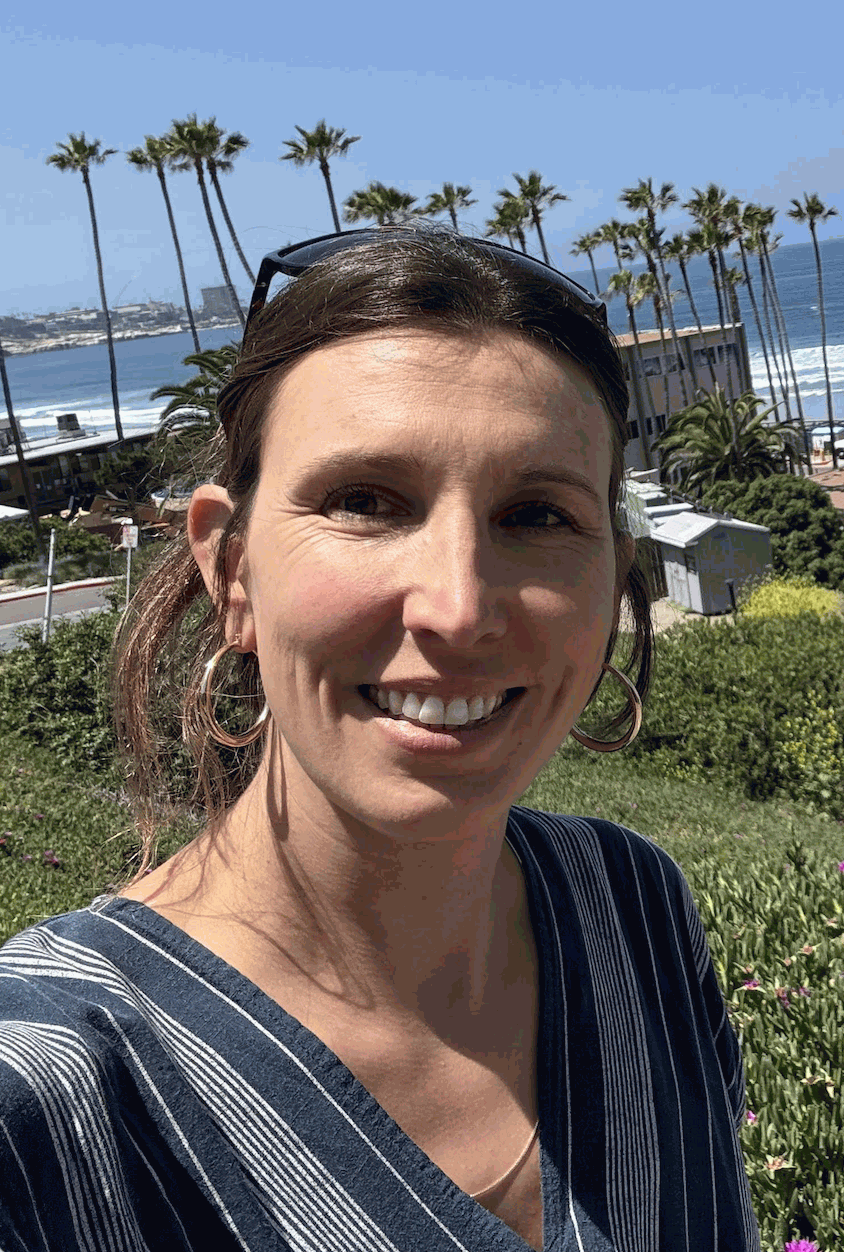 Dr. Ilysa Iglesias
Dr. Ilysa Iglesias Dr. Joachim Claudet
Dr. Joachim Claudet Dr. Elizabeth Hetherington
Dr. Elizabeth Hetherington Dr. Diva Amon
Dr. Diva Amon Mr. Pradeep Singh
Mr. Pradeep SinghEvent Time: 13:00 - 14:30 BRT (GMT-3)
Event Organizers: Deep-Ocean Stewardship Initiative (DOSI).
This event highlights the need to balance climate and biodiversity actions affecting the deep sea. The deep sea plays key roles in the carbon cycle and climate regulation. Through the biological pump, the activities of mesopelagic organisms and physical processes the deep sea is the largest reservoir of carbon on the planet. However, human activities in the deep sea such as bottom fishing, offshore energy extraction, and deep seabed mining could release carbon and threaten carbon sequestration processes.
Protection of biodiversity and ecosystems can maintain or enhance carbon sequestration. The deep sea has taken up excess heat and CO2 from the atmosphere, keeping the planet habitable. It is now being considered as a carbon disposal site for marine carbon dioxide removal activities. These effects place deep-sea ecosystems and their biodiversity under additional stress. The deep ocean-climate-biodiversity nexus has thus far been neglected from a regulatory perspective, but new opportunities exist for multilateral governance that adopts climate-positive and biodiversity-positive actions. Panelists will discuss synergies between climate change mitigation and biodiversity protection in the deep sea, identify actions that have co-benefits and consider activities that may pose significant risks.
AGENDA
13:00 Moderator Cymie Payne: Welcome and brief introduction of the event, its objectives, the format of the event
13:03 Lisa Levin: Deep-Sea Connections to Climate - biodiversity roles in the carbon cycle and vulnerabilities from human activity; climate changes in the deep sea; and ecosystem responses and mitigation
13:10 Ily Iglesias: Conservation of the Mesopelagic
13:16 Joachim Claudet: Climate smart MPAs from Seafloor to Surface & from EEZs to ABNJ
13:22 Liz Hetherington: Climate Change risks and mCDR (Science Contributions: Exploration, Observing, Modeling)
13:28 Diva Amon: Deep Seabed Mining
13:34 Erik Cordes: Offshore Energy: Renewables & Fossil Fuel
13:40 Pradeep Singh: Governance Challenges: Harmonizing the Deep Ocean Across the UN
13:46 Moderated Panel Discussion
14:18 Audience Q and A
14:28 Moderator: Closing remarks
Facilitators:
Deep Ocean Stewardship Initiative: Lisa Levin (llevin@ucsd.edu) and Michelle Guraieb (mguraieb@ucsd.edu)
 November 10, 2025 08:00
November 10, 2025 08:00 Dr. Ruth Boumphrey
Dr. Ruth Boumphrey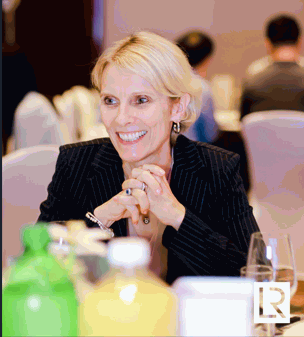 Philippa Charlton
Philippa Charlton_1761930395623.jpg) Captain Elizabeth Marami
Captain Elizabeth Marami Dr. Tim Slingsby
Dr. Tim Slingsby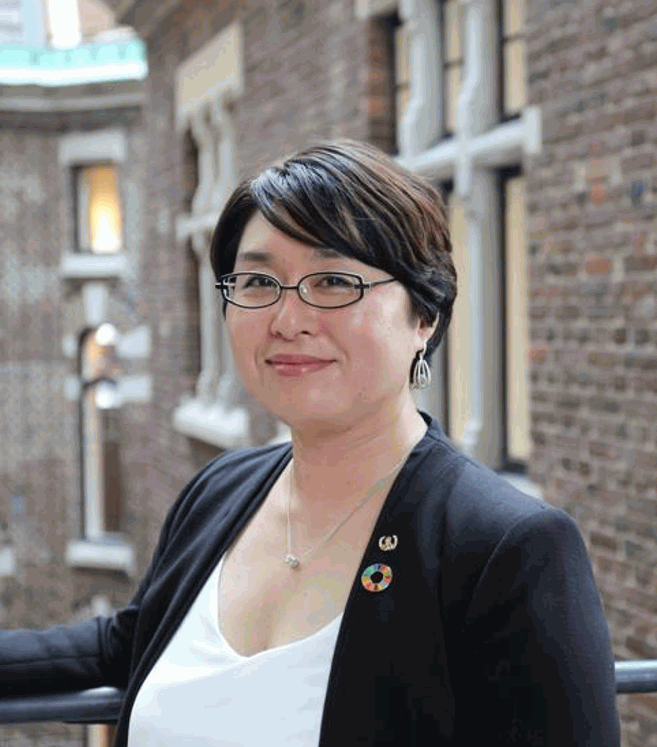 Professor Momoko Kitada
Professor Momoko Kitada Dr. Renis Ojwala
Dr. Renis Ojwala Anastasia Kouvertari
Anastasia Kouvertari_1761930500198.jpg) Nick Brown
Nick BrownEvent Time: 8:00 - 9:30 BRT (GMT-3)
Event Organizers: Lloyd’s Register and Lloyd’s Register Foundation
Securing maritime safety for the seafarer of today and tomorrow
Behind the push for decarbonisation and digitalisation lies a quieter crisis: a shortage of skilled ocean workers able to safely operate and maintain vessels and infrastructure through the energy and digital transitions. But the challenge goes deeper.
Loneliness and depression onboard are growing concerns. Workload is increasing - often due to difficulty in recruiting trained crew - and the amount of shore leave is reducing. A recent study by the ITF Seafarers Trust, analysed by the World Maritime University, found that on an average 6½-month contract, more than a quarter of seafarers received no shore leave at all, and a third only went ashore once or twice. For those of us working on land, that’s difficult to comprehend.
The impact is clear. The most recent Seafarer Happiness Index, published in Q3 by the Mission to Seafarers, identifies shore leave, workload, and welfare as the lowest-scoring areas. These are not just HR challenges - they are safety risks, climate risks, and systemic vulnerabilities.
With 80% of global trade facilitated by seafarers, this crisis threatens access to food, energy, and goods, and blocks progress on ocean-based climate solutions. Addressing it means investing not only in skills and training, but in wellbeing, support systems, and fair working conditions.
AGENDA
Welcome & introductions
Addressing the challenges of today
Addressing the challenges of tomorrow
Inclusive pathways into maritime careers
Skills needed for alternative fuels (hydrogen, ammonia, methanol)
Training gaps in digital ship systems and automation
Aligning workforce development with COP30 goals
ORGANIZERS:
Lloyd’s Register: Lucy Dibdin, Glenn Harris, and Penny Thomas
Lloyd’s Register Foundation: Grace Marren and Heather Skull
 November 10, 2025 10:30
November 10, 2025 10:30 Dr. Gemma Connell
Dr. Gemma ConnellRoundtable Time: 10:30 - 12:00 BRT (GMT-3)
Roundtable Organizers: Ocean Generation
Facilitating conversations about the environment can be challenging. So... Ocean Generation launched the Ocean Conversation pack: a practical guide to having meaningful conversations that drive Ocean Action. As part of the Virtual Ocean Pavilion, we are running a session to guide you through how you might go about running your own Ocean Conversation, and encourage you to run your own Ocean Conversations in your own localities throughout COP and beyond.
AGENDA
Introduction to Our Ocean
How to use the Ocean Conversation Pack
Starter Science
Facilitation Tools
Evaluation, Taking Ocean Action and Reporting
ORGANIZER: Dr. Gemma Connell, Ocean Generation
 November 10, 2025 13:00
November 10, 2025 13:00 Dr. Marea Hatziolos
Dr. Marea Hatziolos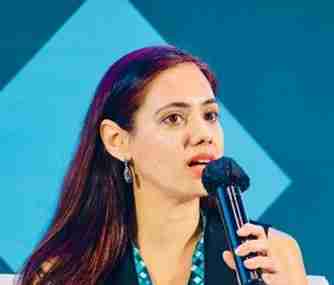 Ms. Jasdeep Randhawa
Ms. Jasdeep Randhawa Ms. Loreley Picourt
Ms. Loreley Picourt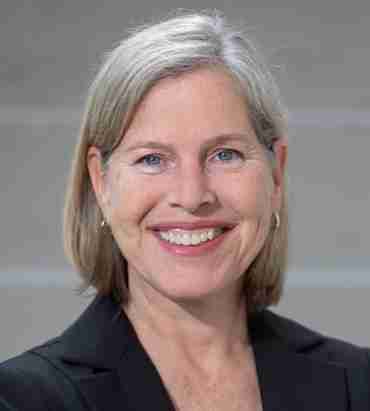 Dr. Susan Gardner
Dr. Susan Gardner Mr. Adam McCarthy
Mr. Adam McCarthy Dr. Lisa Levin
Dr. Lisa Levin Ambassador Elvira Velásquez
Ambassador Elvira Velásquez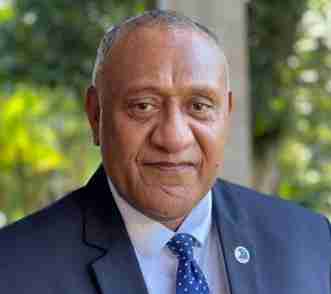 Dr. Filimon Manoni
Dr. Filimon Manoni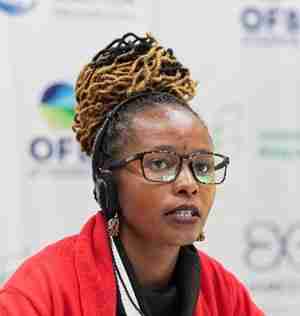 Ms. Esther Maina
Ms. Esther Maina Ms. Jo Ruxton MBE
Ms. Jo Ruxton MBE Dr. Ruth Boumphrey
Dr. Ruth Boumphrey Dr. María José González-Bernat
Dr. María José González-Bernat Dr. Andrei Polejack
Dr. Andrei Polejack Mr. Camille Bourgeon
Mr. Camille BourgeonEvent Time: 13:00 - 14:45 BRT (GMT-3)
Event Organizers: Global Ocean Forum & Plymouth Marine Laboratory
COP30 is being held in the Amazon, a region that serves as a global carbon sink. But ocean ecosystems – from mangroves to the deep sea – are equally vital to our climate future and integral to achieving the goals of the Paris Agreement. Protecting, sustainably managing, and financing ocean and coastal ecosystems are essential to limit warming to 1.5°C, safeguard biodiversity, support communities, and build climate resilience.
The COP30 Presidency urges Parties and non-Party stakeholders to focus on the UNFCCC’s ultimate objective, the Paris Agreement’s long-term resilience goal, the Global Goal on Adaptation (GGA), and National Adaptation Plans (NAPs) to make COP30 the COP of adaptation.
Session speakers will be sharing their insights and perspectives on elevating adaptation as well as mitigation through ocean-based solutions in alignment with the Presidency’s three priorities: (i) strengthening multilateralism; (ii) connecting the climate regime to people’s daily lives; and (iii) accelerating climate implementation.
AGENDA
13:00 Moderator: Dr. Marea Hatziolos, Welcome and opening remarks
13:05 Ms. Jasdeep Randhawa and Ms. Loreley Picourt, Increasing ambition
13:15 Ms. Susan Gardner, Protecting and restoring coastal ecosystems
13:20 Mr. Adam McCarthy, Protecting the high seas and multilateralism (pre-recorded presentation)
13:27 Dr. Andrei Polejack, Harnessing sustainable ocean food
13:32 Mr. Camille Bourgeon, Accelerating maritime decarbonization
13:37 Dr. Lisa Levin, International cooperation to advance science in service of climate solutions from the surface to the deep ocean
13:42 Question & Answer with attendees (15 minutes)
13:57 Ambassador Elvira Velásquez, Dr. Filimon Manoni, and Ms. Esther Maina, Responsible ocean governance
14:12 Ms. Jo Ruxton MBE, Dr. Ruth Boumphrey, and Dr. María José González-Bernat, Capacity building and outreach to coastal communities
14:27 Question & Answer with attendees (13 minutes)
14:40 Dr. Marea Hatziolos, Closing remarks
 November 12, 2025 09:00
November 12, 2025 09:00 Geoffrey Pouget
Geoffrey Pouget Louna Wemaere
Louna Wemaere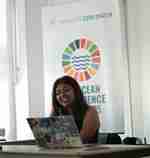 Aditi Yadav
Aditi Yadav Ayesha Hanif
Ayesha Hanif Francisca Javiera González Salas
Francisca Javiera González Salas Lolita Couchene
Lolita CoucheneEvent Time: 9:00 - 10:30 BRT (GMT-3)
Event Organizers: Nausicaá and World Ocean Network
This interactive workshop will foster intergenerational cooperation to tackle climate denialism from an ocean perspective, a COP30 priority. It will open with a dialogue between experts and participants to explore the issue. In an interactive segment, participants will co-create a “handy guide” infographic suggesting strategies to spot reliable sources, counter misinformation, safeguard trustworthy information, and clarify roles of scientists, media, policymakers, and citizens.
AGENDA
09:00 - Introduction
Moderator: Lolita Couchene
Welcome and brief introduction of the event, its objectives, and the interactive format
Short interactive cloud word to engage participants
09:10 - Intergenerational perspectives on climate denial
Four short interventions of 4 min each by speakers:
- Louna Wemaere, QuotaClimat: Understanding denial beyond disbelief
How denial takes different forms, from government inaction to the framing of climate issues as distant or unaffordable.
- Aditi Yadav, Youth representative COO: Intergenerational justice and the cost of delay
How younger generations inherit the consequences of inaction, and why solidarity across ages is essential to rebuild trust and urgency.
- Geoffrey Pouget, Amarres Conseil: The power/role of words and media ecosystems
How misinformation spreads through language, culture, and media and how communication gaps or generational divides shape who we trust.
- Emily Nocito, ECOP: Disinformation in ocean conservation: understanding its impact on public perception and action
- Drawing on the speaker’s experience in marine conservation to explore how disinformation manifests in this field and influences public understanding, trust, and engagement.
09:30 - Interactive breakout discussions - understanding and countering climate denial
Participants are divided into four breakout groups to discuss
1. Recognizing disinformation (Facilitator: Aditi Yadav)
o How can we distinguish between credible ocean–climate research and misinformation amplified through media or social platforms? What signs of reliability should we look for in data sources or visual evidence?
o Who benefits from spreading disinformation about ocean and climate science (e.g., fossil fuel interests, political actors, online influencers), and how do these motives shape the narratives we encounter?
o In what ways do emotional appeals and/or selective data influence public understanding of ocean–climate issues? How can we balance urgency with accuracy?
o What strategies can scientists, educators, and citizens use to identify, counter, and communicate against ocean–climate disinformation effectively?
2. Building trust across generations and media. (Facilitator: Ayesha Hanif)
o How has the shift from traditional media/sources to digital media and social media impacted public trust in science (especially climate change and related information)?
o Importance of being able to differentiate between actual news/information and misinformation/fake news, especially in the age of AI and social media.
o How to challenge and discourage echochambers or sources of misinformation without being dismissive of other people's preferred sources of information?
o What is the role of the media/sources that each generation/age group uses primarily, and what could a ‘trusted climate communication ecosystem’ potentially look like?
3. Reframing climate-ocean narratives toward action. (Facilitator: Francisca Javiera González Salas)
o What does language mean to you in the context of climate change narratives?
o What is the connection between climate narratives and action?
o What do you think climate change narratives urgently need for the word to be climate action?
o How significant is climate action in climate policy for you?
4. Making climate and ocean negotiations accessible. (Facilitator: Elisa Soares)
Facilitators collect insights and examples for the co-created “Handy Guide” using a draft template
10:00 - Plenary feedback
Report-back from breakout groups
Moderator resumes and synthesizes key messages of the “Handy Guide” (template of the Miro platform filled by the different breakout discussion)
10:20 - Moving forward and wrap up
Participants are invited to share one personal or collective action they will take against disinformation.
Closing remarks by the moderator.
ORGANIZERS: Nausicaa, World Ocean Network
 November 12, 2025 11:00
November 12, 2025 11:00 Dr. Tom Roland
Dr. Tom Roland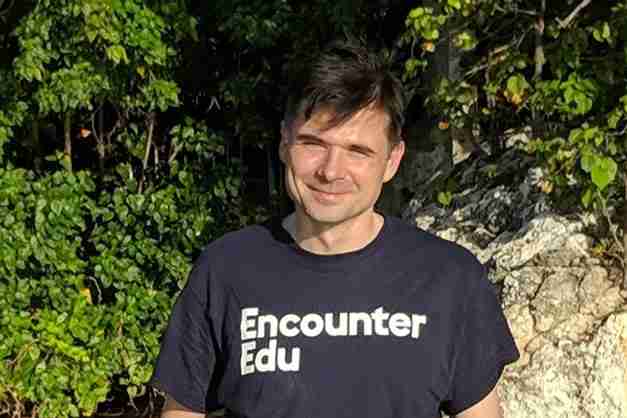 Jamie Buchanan-Dunlop
Jamie Buchanan-DunlopEvent Time: 11:00 - 11:45 BRT (GMT-3)
Event Organizers: Convex Seascape Survey
Join this Convex Seascape Survey COP Live Lesson to see how secondary school students around the world are exploring the vital connection between the ocean and climate change. The 45-minute broadcast sees a Convex Seascape Survey scientist and education lead introduce the complex relationship between the ocean and the carbon cycle — uncovering how carbon moves and is stored across the Earth system, and revealing the ocean’s paradoxical role as both victim and solution.
For scientists and Pavilion partners, this is an opportunity to experience the Convex Seascape Survey’s education outreach in action — to see how complex ocean and climate science is translated for young audiences, take part in the same live chat and polls, and gain fresh perspective on how the next generation connects with the ocean as our climate ally.
Live lesson overview:
1. Welcome & Ocean Pavilion context (3 minutes)
2. The Ocean & the Carbon Cycle (6 minutes)
3. Where is all the carbon? (6 minutes)
4. Why does this matter for the ocean? (6 minutes)
5. How can the ocean help? (6 minutes)
6. Wrap-up (2–3 minutes)
7. Q&A (10–15 minutes)
ORGANIZER:
• Convex Seascape Survey: Jamie Buchanan-Dunlop, jamie@encounteredu.com
• Convex Seascape Survey: Jade Rolph, jade@bluemarinefoundation.com
 November 12, 2025 15:00
November 12, 2025 15:00 Laura Khatib Lakiss
Laura Khatib Lakiss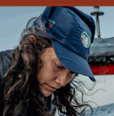 Paola Sangolquí
Paola Sangolquí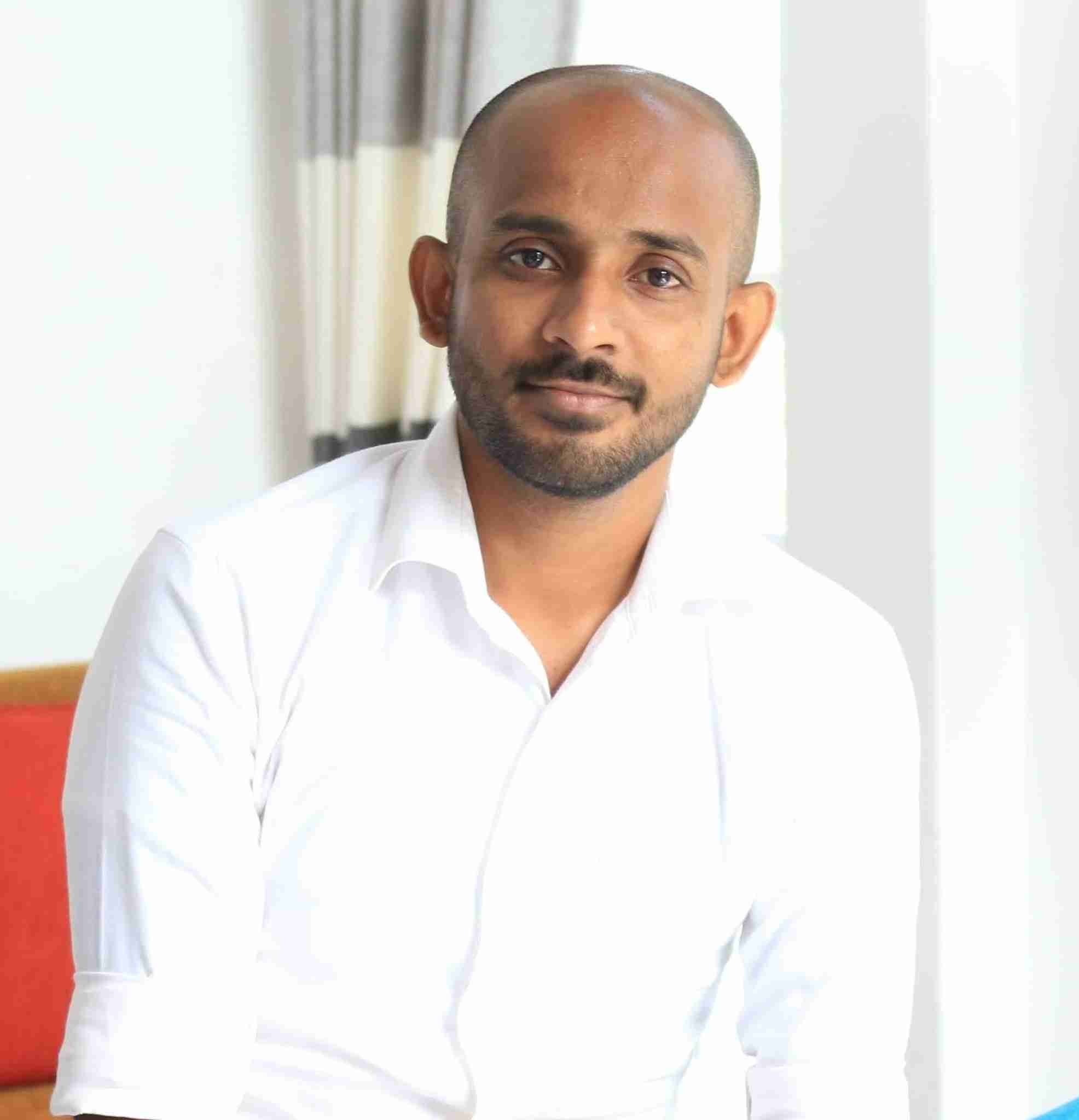 Udayanga Sampath
Udayanga Sampath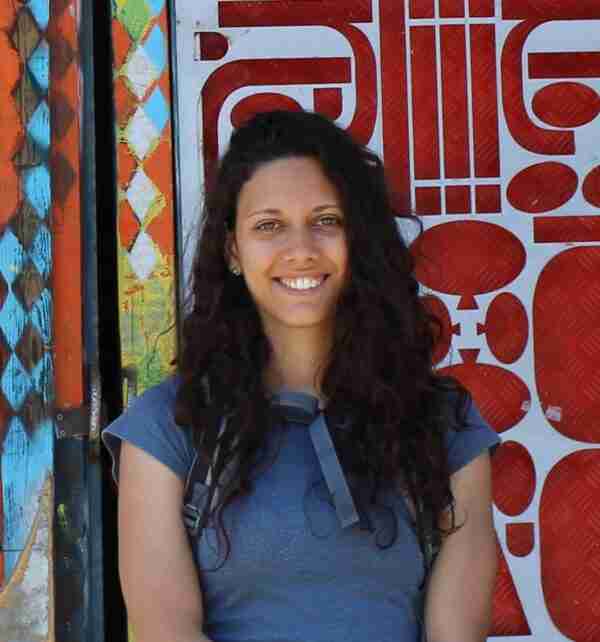 Xochitl Edua Elias Ilosvay
Xochitl Edua Elias Ilosvay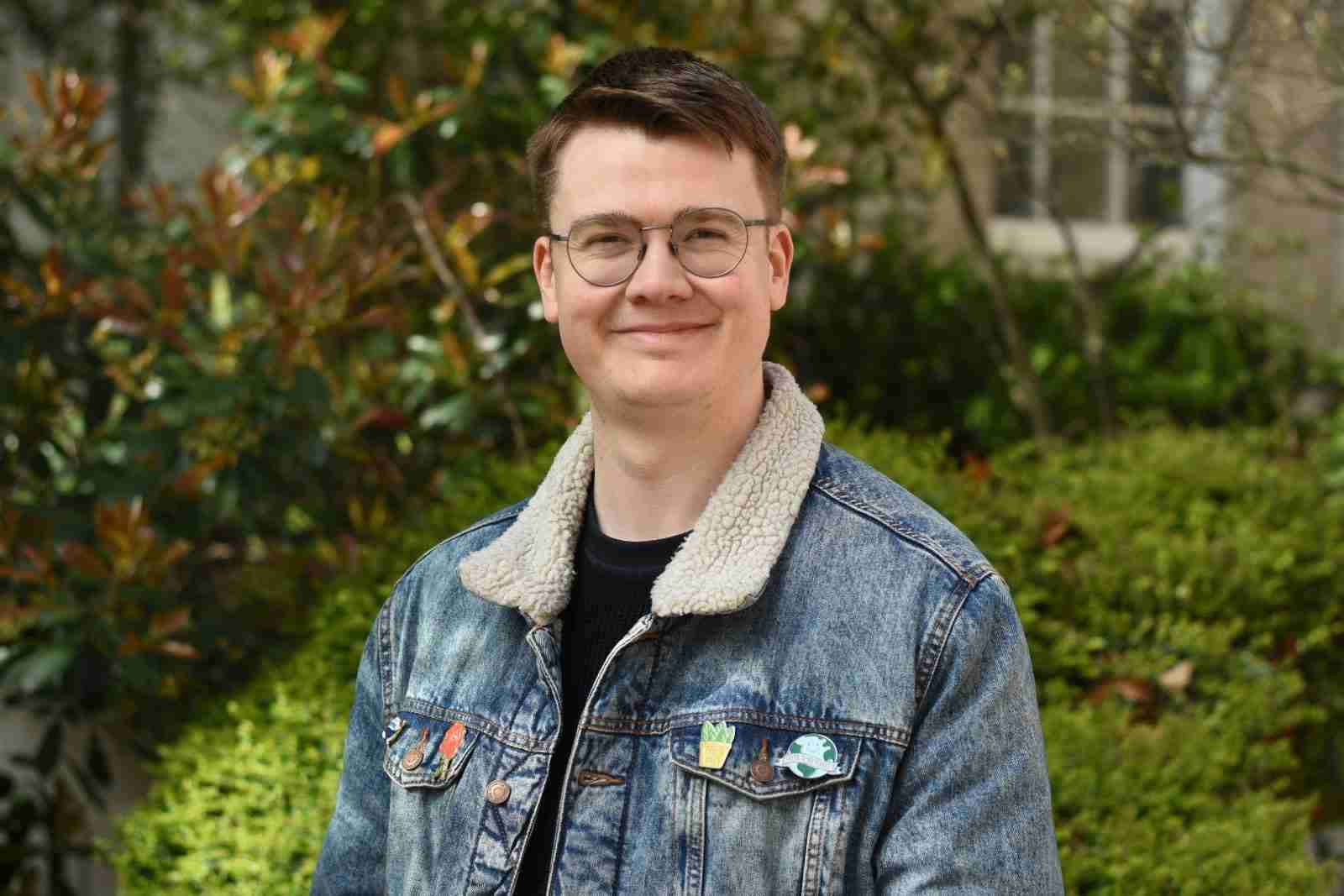 Conor Savage
Conor SavageRoundtable Time: 15:00 - 16:30 BRT (GMT-3)
Roundtable Organizers: Early Career Ocean Professionals (ECOP) Programme
This roundtable will draw on experiences from the ECOP Programme side events on capacity development and inclusivity organized at the UN Ocean Decade Conference in 2024 and the One Ocean Science Congress and UN Ocean Conference in 2025. We shall discuss how insights from these gatherings, especially around regional capacity development, language engagement, and geopolitical and intersectoral inclusivity, could lead to more equitable and diverse participation in the UN Ocean Decade.
AGENDA
15:00 Moderator (brief introduction of the event: motivation, objectives, and format of the event (panel discussion)).
15:10 Panel discussion 1: Voices not present - experiences from the past
● Presentation of the panel
● Slido question:
○ The sectors that are present, are there any local coastal communities, indigenous people present
● Panel discussion question:
○ To your experience, how much has the Ocean Decade facilitated the participation of diverse stakeholders such as coastal community members, organizations, indigenous peoples at the international level?
● Slido questions:
○ How many of them tried to attend COP but were not able?
○ What was the barrier that avoided your participation?
● Panel discussion:
○ To what extent has the Ocean Decade has helped to overcome these challenges and where do we still have setbacks?
○ Where do you think there is still room for improvement?
15:40 Panel Discussion 2: Building the Future of Inclusive Ocean Leadership
● Slido Questions:
○ What forms of capacity support are most needed in your region (training, funding, mentorship, policy inclusion, etc.)?
○ Which partnerships could most effectively strengthen inclusivity in the next phase of the Ocean Decade?
● Panel Discussion:
○ How can we strengthen regional and local capacity development to ensure equitable access to opportunities?
○ What approaches can amplify underrepresented voices and improve language inclusivity in global ocean dialogues?
○ How can geopolitical inclusivity be embedded into the Ocean Decade’s future governance and decision-making?
16:10 Q&A Session
Open floor for audience interaction and reflections from participants.
16:25 Wrap-up and Closing Remarks: Moderator summarizes key takeaways and outlines next steps for enhancing inclusion, capacity, and leadership through 2030 and beyond.
ORGANIZERS:
Early Career Ocean Professional Programme
 November 14, 2025 09:00
November 14, 2025 09:00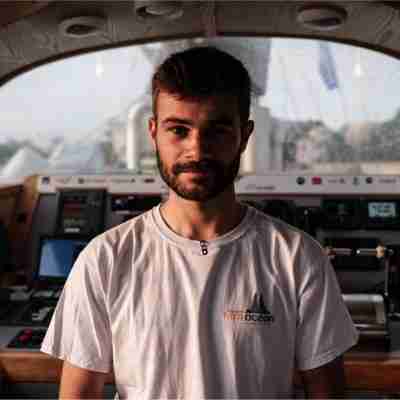 Mr. Martin Alessandrini
Mr. Martin Alessandrini_1761900582032.png) Mr Ross Gracey
Mr Ross Gracey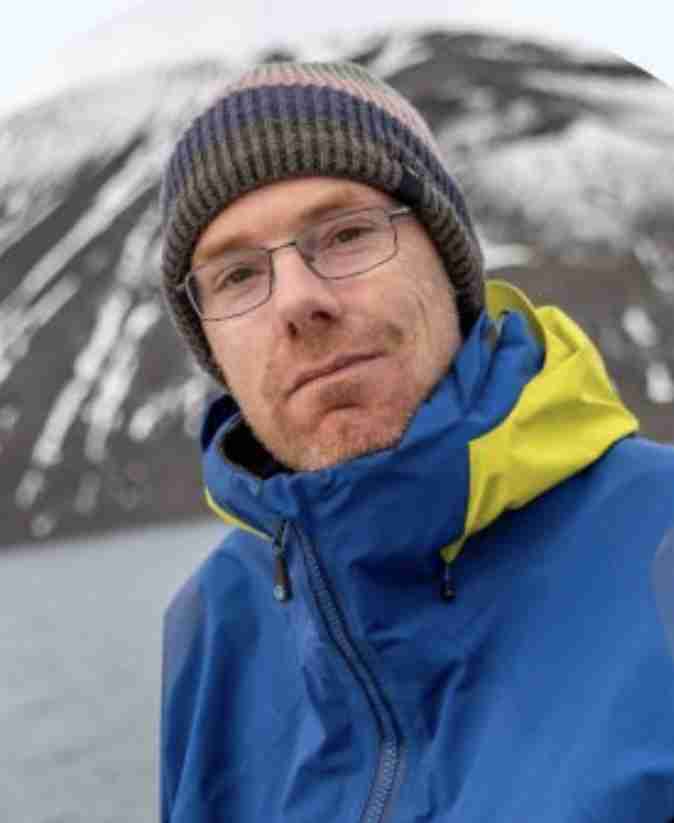 Prof. Alessandro Tagliabue
Prof. Alessandro Tagliabue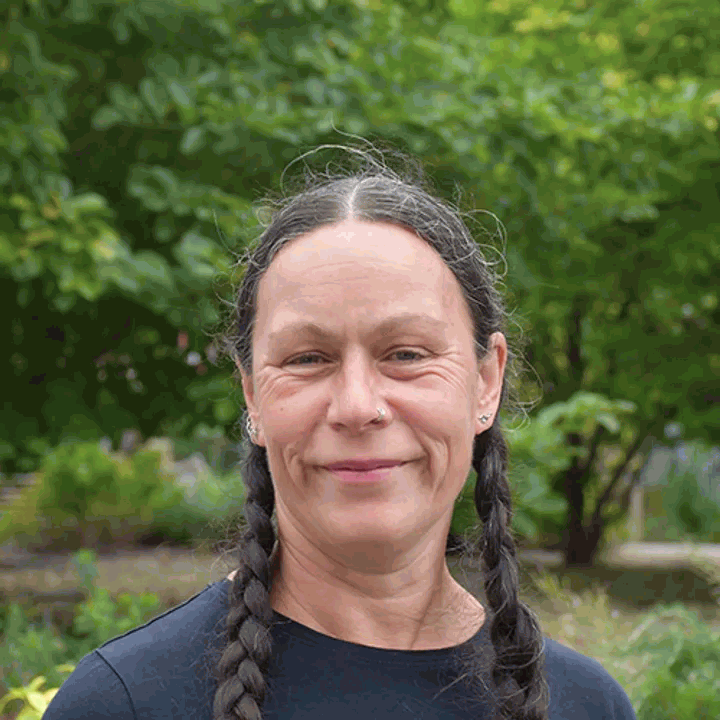 Dr. Nova Mieszkowska
Dr. Nova Mieszkowska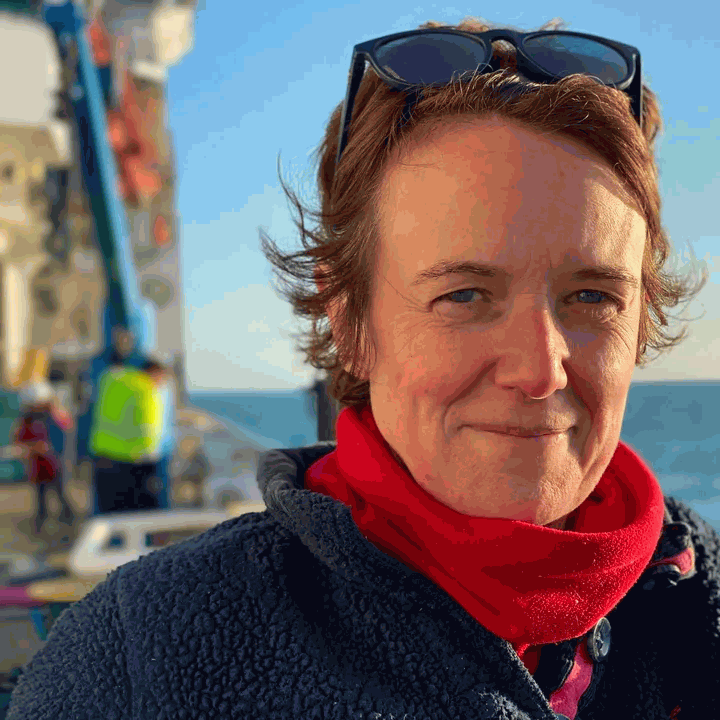 Prof. Claire Mahaffey
Prof. Claire Mahaffey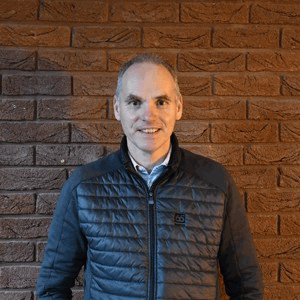 Prof. Ric Williams
Prof. Ric Williams Prof. Chris Hughes
Prof. Chris Hughes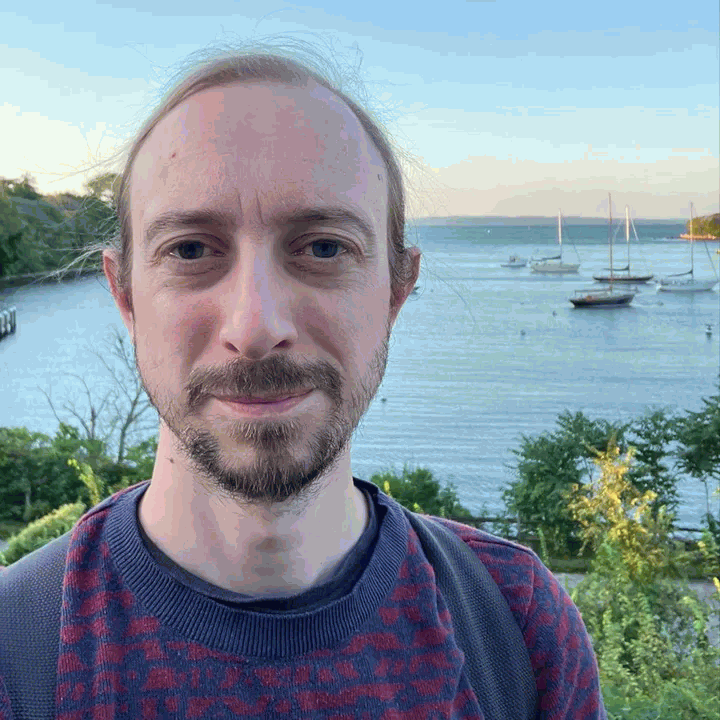 Dr. Jamie Wilson
Dr. Jamie WilsonEvent Time: 9:00 - 10:30 BRT (GMT-3)
Event Organizers: University of Liverpool
Single cell organisms, known as plankton underpin global-scale ocean ecosystem services: fueling fisheries via productivity and storing carbon in the deep ocean. However, the future of both services is highly uncertain in IPCC projections. This event focuses on presenting the scientific challenge of integrating from the micro-scale of single cells up to the global-scale of the carbon cycle and climate. It aims to provide a window into the challenges and knowledge gaps around predicting productivity and carbon storage to contextualize the broader discussion of monitoring biodiversity and managing fisheries (SDGs 2 & 14), uncertainties in IPCC projections, and marine carbon dioxide removal techniques (SDG 13).
This event features ocean scientists and marine ecologists at the University of Liverpool, and collaborators at the Tara Ocean Foundation. These researchers lead international scientific activity across this diverse research area.
AGENDA
9.00 Introduction (Dr. Jamie Wilson)
Biodiversity and Productivity
9.10 Diversity of Plankton in the Ocean (Mr. Martin Alessandrini, Tara Ocean Foundation – TBC)
9.18 Imaging the diversity of plankton communities (Mr. Ross Gracey)
9.26 The grand challenge of predicting the evolution of marine primary production in a changing climate (Prof Alessandro Tagliabue)
9.30 Questions
Biodiversity and Climate: Regional Case Studies
9.35 Tracking climate driven changes in biodiversity and ecosystem function in the northeast Atlantic (Dr. Nova Mieszkowska)
9.43 Can we detect change in Arctic Ecosystems? (Prof. Claire Mahaffey)
9.51 Questions
10.00 Warming stripes for the atmosphere and ocean (Prof. Ric Williams)
10.08 The globally connected ocean circulation (Prof. Chris Hughes)
10.16 The grand challenge of predicting biological carbon storage in a changing climate (Dr. Jamie Wilson)
10.25 Questions
Facilitator:
Dr. Jamie Wilson, University of Liverpool
 November 14, 2025 12:00
November 14, 2025 12:00 Dr. Miriam C. Balgos
Dr. Miriam C. Balgos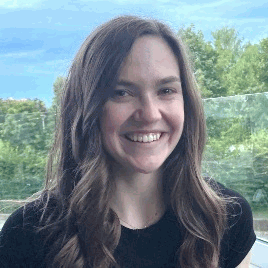 Ms. Catie Mitchell
Ms. Catie Mitchell Dr. Peter J. Ricketts
Dr. Peter J. Ricketts Ms. Karina Higa
Ms. Karina Higa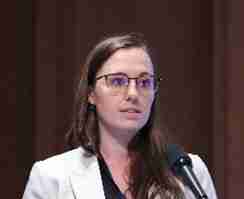 Marketa Zackova
Marketa Zackova Torsten Thiele
Torsten Thiele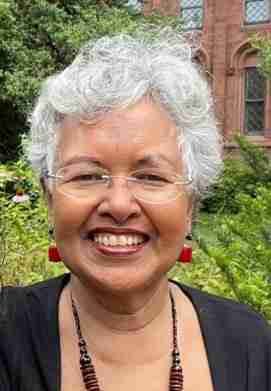 Dr. Indumathie Hewawasam
Dr. Indumathie Hewawasam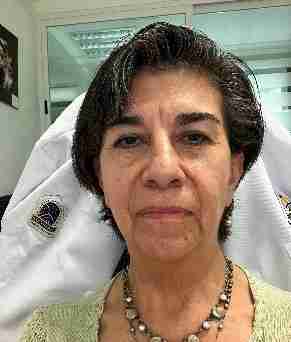 Dr. Evelia Rivera-Arriaga
Dr. Evelia Rivera-Arriaga Ms. Aimee Gonzales
Ms. Aimee Gonzales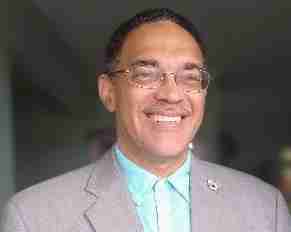 Mr. Christopher Corbin
Mr. Christopher Corbin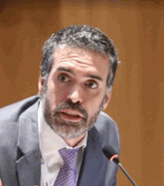 Mr. Pablo Escribano
Mr. Pablo Escribano Mr. Aygün Karlı
Mr. Aygün KarlıEvent Time: 12:00 - 13:30 BRT (GMT-3)
Event Organizers: Global Ocean Forum
The Report on Assessing Progress on Ocean and Climate Action (ROCA Report) is a biennial assessment intended to provide information on the progress achieved in various areas of the ocean and climate nexus on a biennial basis, continuing the legacy of reporting on the Strategic Action Roadmap to Ocean and Climate Action: 2016-2021 (ROCA) Initiative. The 2024-2025 ROCA Report provides a summary of major developments in ocean and climate policy and action since the UNFCCC COP28 in Dubai, following the themes established in the prior reports, such as the central role of ocean in climate; ocean-based adaptation and mitigation; blue economy; marine areas beyond national jurisdiction (see the reports here) and will be presented and distributed at the UNFCCC COP30 in Belém, Brazil.
Panelists representing the 70 report co-authors spoke on priority recommendations emanating from the report as highlighted in the Executive Summary for Decisionmakers, which are aligned with the COP30 Presidency priorities.
AGENDA
Welcome and introduction:
• Miriam Balgos, Global Ocean Forum
• Catie Mitchell, Global Ocean Forum
Panel Discussion 1: Scaling Science-based Solutions for an Equitable Ocean Future
Moderator: Peter Ricketts, Acadia University and Global Ocean Forum
Panelists:
• Karina Higa, Empathea Blue Ltda
• Marketa Zackova, Seascape Consultants Ltd
• Torsten Thiele, Global Ocean Trust
• Whitney Berry, Ocean Conservancy
Panel Discussion 2: Strategies for Regional Implementation of Identified ROCA Priorities
Moderator: Indumathie Hewawasam, Global Ocean Forum
Panelists:
• Evelia Rivera Arriaga, Universidad Autonoma de Campeche, Mexico
• Aimee Gonzalez, Partnerships in Environmental Management for the Seas of East Asia (PEMSEA) (by video presentation)
• Christopher Corbin, UNEP Cartagena Convention Secretariat
• Pablo Escribano, International Organization for Migration
Wrap-up:
• Peter Ricketts, Acadia University and Global Ocean Forum
Call to action:
• Aygün Karlı, Citizen of the Ocean youth-led forum, Nausicaá Centre National de la Mer
ORGANIZERS:
• Miriam Balgos, Global Ocean Forum, mbalgos@globaloceanforum.com
• Catie Mitchell, Global Ocean Forum, cmitchell@globaloceanforum.com
 November 17, 2025 10:00
November 17, 2025 10:00 Dr. Ben Moat
Dr. Ben Moat Prof. Tim Lenton
Prof. Tim Lenton Dr. Louise Sime
Dr. Louise Sime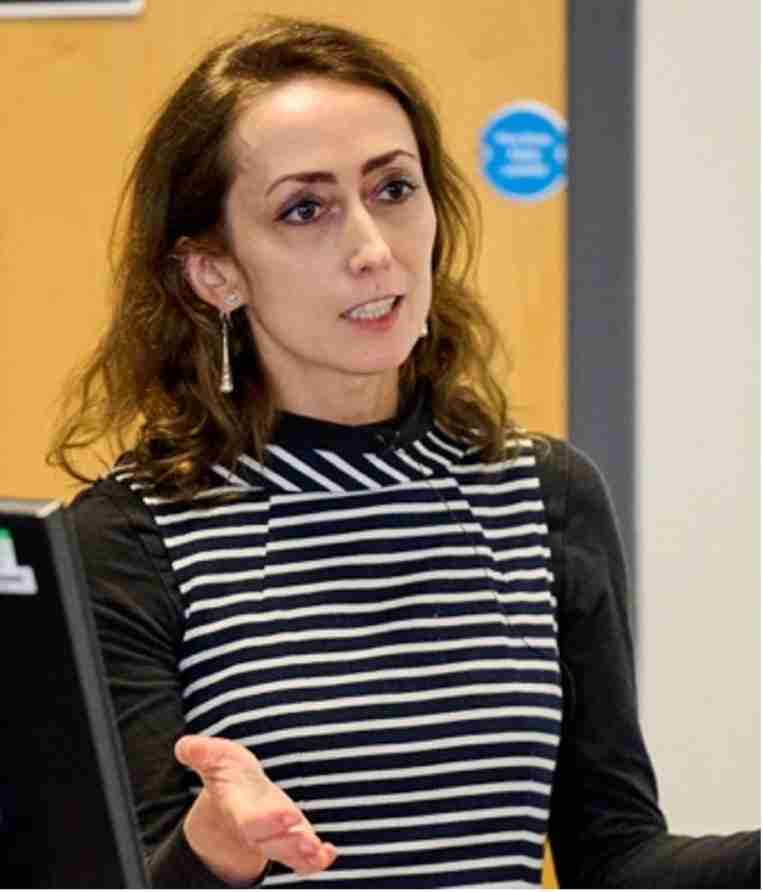 Professor Viktoria Spaiser
Professor Viktoria Spaiser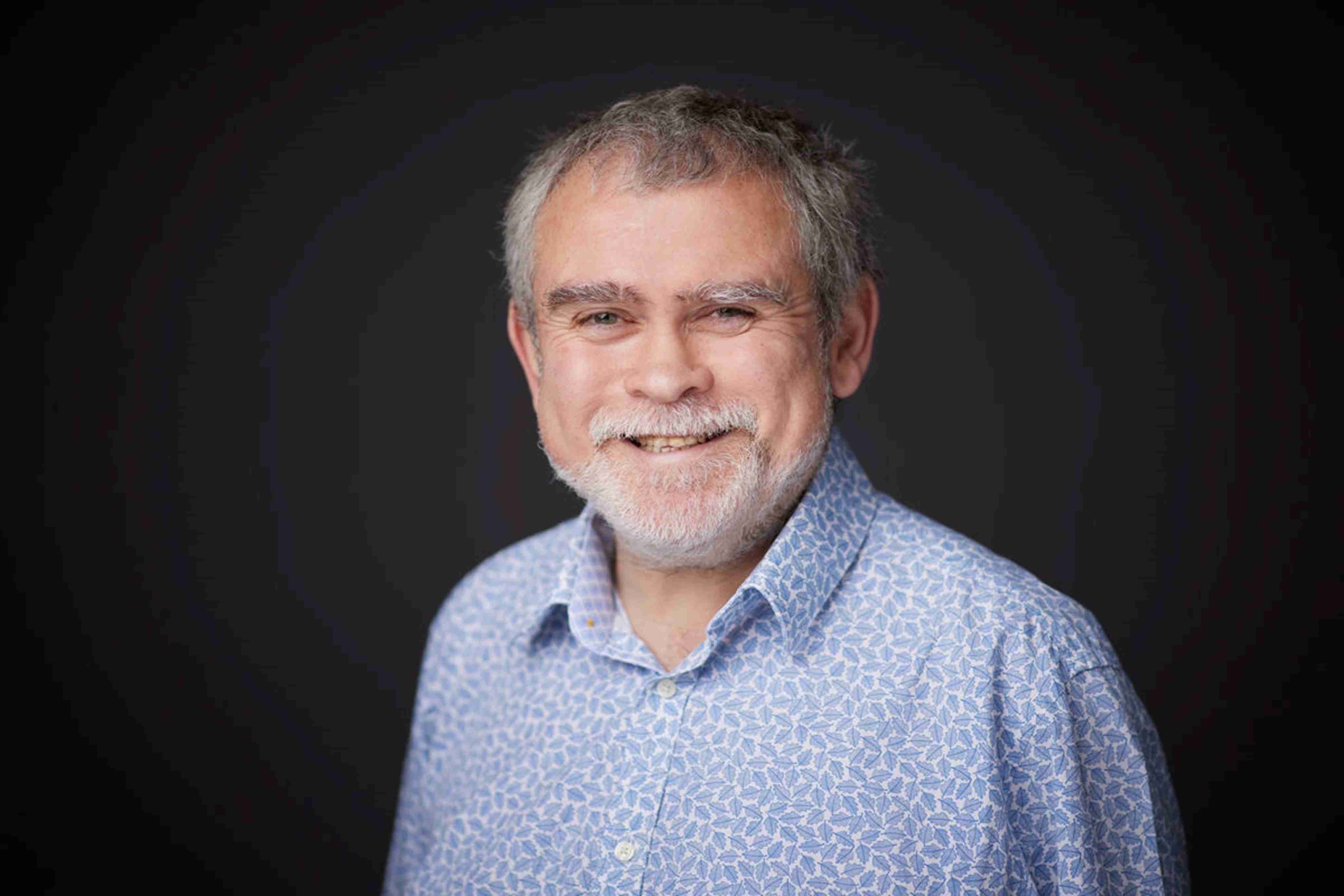 Prof. Alex Rogers
Prof. Alex Rogers Arianwen Herbert
Arianwen HerbertEvent Time: 10:00 - 11:30 BRT (GMT-3)
Event Organizers: National Oceanography Centre, UK
A tipping point is where a key threshold lies within a system beyond which a small change can trigger a rapid shift between substantially different system states. Whilst such changes may take place in years or decades, in the climate context they may take place over timescales of centuries or more. Ocean/climate tipping points include the slowdown of the Atlantic Meridional Overturning Circulation (AMOC), the loss of summer sea ice in the Arctic, the collapse of the West Antarctic Ice Sheet (WAIS) and the die off of tropical, shallow-water coral reefs. Ocean observations are key to better understanding the critical thresholds to large-scale abrupt changes in the ocean and modern technologies, including our ability to model ocean and atmospheric data may be critical in predicting the risks of crossing tipping points and the consequences of doing so, including climate feedbacks. The ocean may also have potential for mitigating the risk of crossing tipping points through management of human activities or through its role in carbon sequestration as a result of geoengineering or nature-based solutions (e.g. blue carbon ecosystem restoration projects). This event explored the ocean’s role in climate risks and as a potential mitigation to some of these risks.
AGENDA
The event featured expert panel run by a Chair who led panelists through a series of mutually agreed upon discussion points. Following the Panel, there was a live Q&A session with the audience through Zoom. The discussions will be summarized in a short paper following the event for circulation via the institutional websites of the panelists and the COP30 Virtual Ocean Pavilion website.
ORGANIZER:
• National Oceanography Centre (NOC): lana.young@noc.ac.uk
 November 17, 2025 12:30
November 17, 2025 12:30 Ms. Janice Trotte-Duhá
Ms. Janice Trotte-Duhá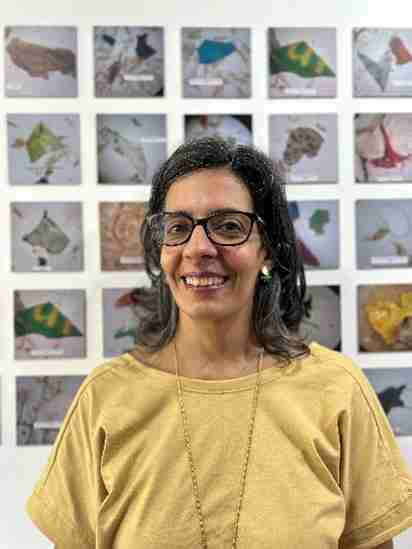 Dr. Leticia Cotrim
Dr. Leticia Cotrim Mr. Peter Teye Busumprah
Mr. Peter Teye Busumprah Dr. Susana Vinzon
Dr. Susana Vinzon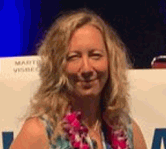 Prof. Juliet Hermes
Prof. Juliet Hermes Dr. Tammy Morris
Dr. Tammy MorrisEvent Time: 12:30 - 14:00 BRT (GMT-3)
Event Organizers: National Institute for Ocean Research (INPO), Brazil
This virtual roundtable highlighted ocean observation systems and low-cost innovations to fill knowledge gaps, improve forecasts, democratize ocean science and guide sustainable blue economy. The session explored how sharing capacities, through the integration of local and regional expertise, and open datasets on ocean dynamics, biodiversity, and biogeochemistry could strengthen climate resilience and provide better access to ocean sciences in the Global South. It also explored ways to integrating different agendas from ocean groups (AAORIA, Ocean20, UN Decade for the Ocean etc.) for a common benefit to all.
AGENDA
1. Opening remarks (5 min): Moderator frames the purpose of the session;
2. Presentations from panelists (10 min each): Perspectives from different countries and at different levels (science, industry, civil society etc.);
3. Closing reflections (10 min each): each panelist shares one key priority or call to action;
4. Moderator wrap-up (5 min): summary of common messages and commitments emerging.
ORGANIZER: National Institute for Ocean Research (INPO)
 November 17, 2025 15:00
November 17, 2025 15:00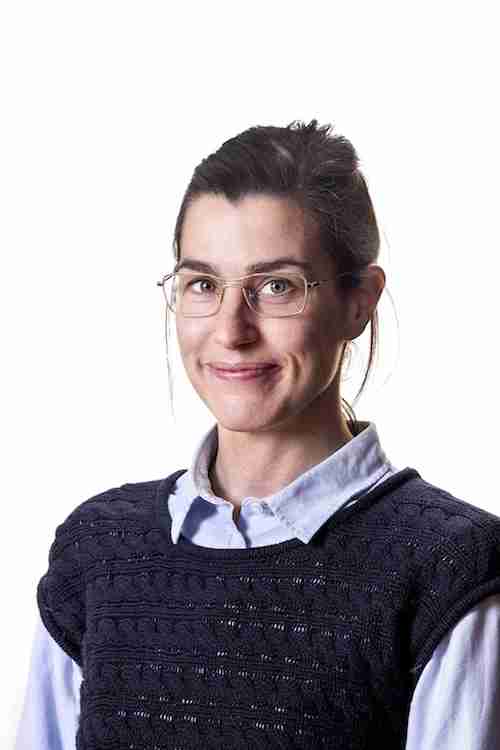 Susanna Lidström
Susanna Lidström Dr. Lisa Levin
Dr. Lisa Levin Anna Metaxas
Anna Metaxas Christine Gaebel
Christine Gaebel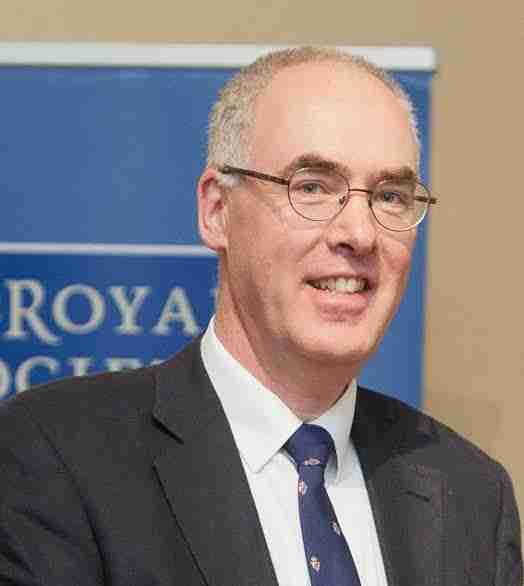 Marcel Jaspars
Marcel Jaspars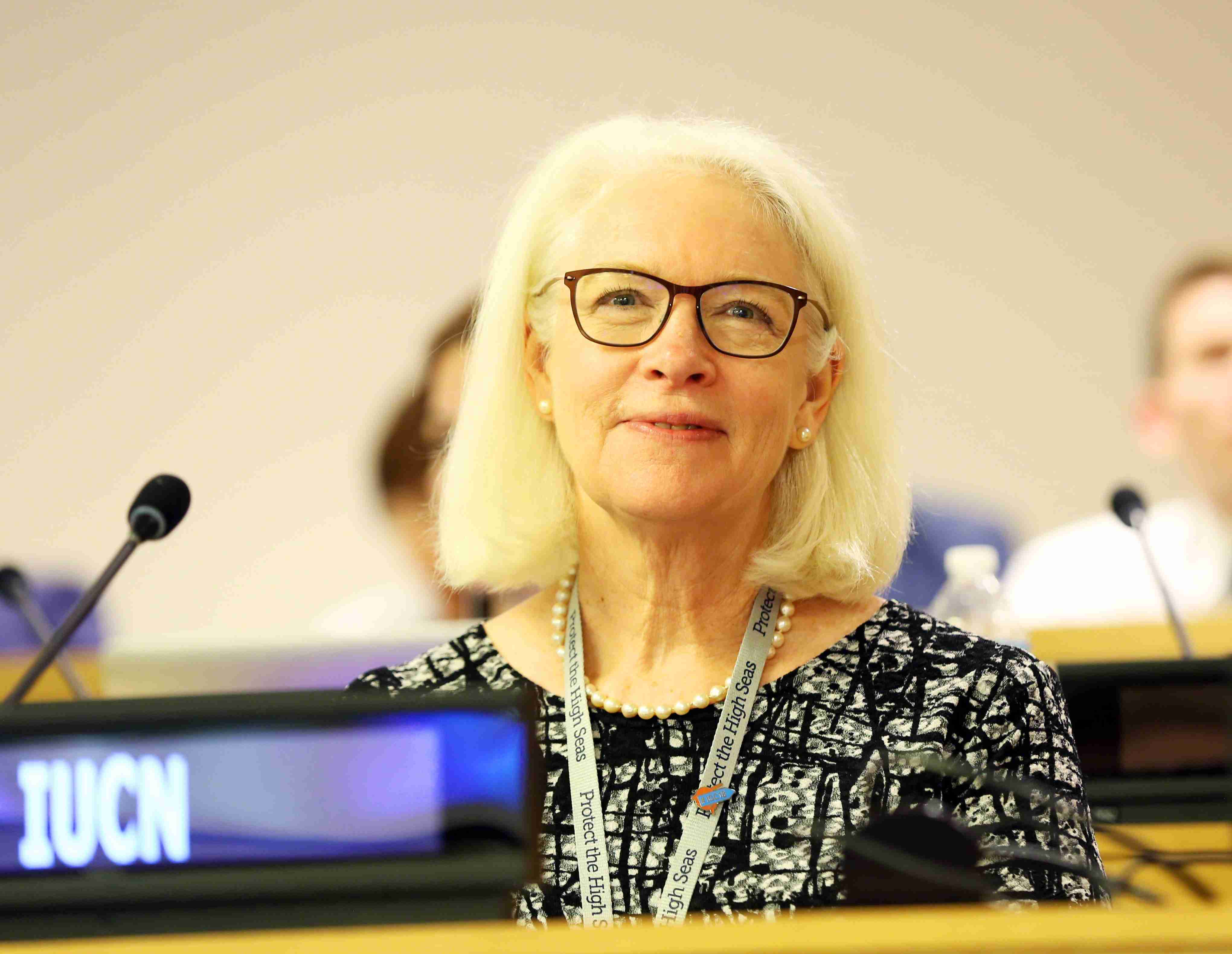 Kristina M. Gjerde, J.D.
Kristina M. Gjerde, J.D.Roundtable Time: 15:00 - 16:30 BRT (GMT-3)
Roundtable Organizers: Deep-Ocean Stewardship Initiative (DOSI)
Life in the deep ocean plays a fundamental role in the global carbon cycle and Earth’s climate system. However, deep-ocean biodiversity and its importance for climate has so far not been addressed by the UNFCCC, and biodiversity and climate governance have overall been treated separately on the international level. The new Agreement on the Conservation and Sustainable Use of Marine Biodiversity beyond National Jurisdiction (BBNJ Agreement) offers an opportunity to change this and presents many opportunities for advancing climate goals through protection and governance of deep-ocean biodiversity.
The roundtable discussed these opportunities as well as challenges with the aim of identifying prioritized climate actions in the deep ocean. Speakers introduced the different parts of the BBNJ Agreement and their relevance for climate, and then facilitated a discussion between all roundtable participants on how the mechanisms of the BBNJ Agreement can be used to pursue climate change adaptation and mitigation in the deep ocean.
AGENDA
Welcome and introduction to event. Susanna Lidström (moderator).
The intersection between climate change, the BBNJ Agreement and the deep ocean. Background information provided by Lisa Levin.
Climate-smart area-based management opportunities in ABNJ. Discussion introduced and facilitated by Anna Metaxas.
Addressing climate via EIAs and SEAs. Discussion introduced and facilitated by Christine Gaebbel.
MGR as Climate Solutions. Discussion introduced and facilitated by Marcel Jaspars.
Capacity Building and Transfer of Marine Technology. Discussion introduced and facilitated by Kristina Gjerde.
Closing remarks by moderator.
ORGANIZERS:
The Deep-Ocean Stewardship Initiative (DOSI) in partnership with Scripps Institution of Oceanography (SIO), KTH Royal Institute of Technology (KTH) and The International Union for the Conservation of Nature (IUCN).
 November 18, 2025 09:00
November 18, 2025 09:00 Marta Diaz Leguizamón
Marta Diaz Leguizamón Dave Stone
Dave Stone Lauren Wenzel
Lauren Wenzel Dr. Kulwa L. Mtaki
Dr. Kulwa L. Mtaki Purwanto Purwanto
Purwanto Purwanto Puri Canals
Puri Canals Muhusina Abdul Rahman
Muhusina Abdul Rahman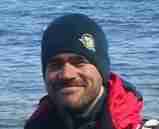 Sébastien Renard
Sébastien Renard Dr. Chantal Vis
Dr. Chantal Vis Phénia Marras
Phénia Marras Fabrice Stephenson
Fabrice StephensonEvent Time: 9:00 - 10:30 BRT (GMT-3)
Event Organizers: International Partnerships on MPA, Biodiversity and Climate Change (IMPABCC)
COP30 will mark the completion of the first full cycle of the Paris Agreement. Implementation must now be the priority. The urgency for Ocean-climate action has never been greater, and we must now move from commitments to implementation. The BBNJ Agreement represents a historic opportunity to protect the high seas that are so critical to regulating the Earth’s climate. This, however, presents a daunting challenge for policy makers and decision makers. This event explored how our experience of establishing our existing MPA and MPA networks in a changing climate can contribute to this effort. Speakers also discussed how exploring real-world applications using effective international collaboration networks, such as the International Partnership on MPAs, Biodiversity and Climate Change (IPMPABCC) can support us to counteract the impacts of climate change and biodiversity loss.
The event presented the IPMPABCC, an alliance of government agencies and organisations from around the world who work together to progress the evidence base around the role of Marine Protected Areas and biodiversity in tackling climate change. The event introduced the Establishing MPAs in a Changing Climate report which the Partnership published in July 2025 in collaboration with the IUCN Protected Areas and Climate Change Specialist Group along with some presentations on MPA, biodiversity and climate work from around the world. This culminated in a panel discussion and Q & A from the audience.
AGENDA
12:00 Opening remarks, Marta Diaz Leguisamón, Deputy Director, National and Natural Parks of Colombia and Chair of the MPA Agency Partnership (MPA AP)
12:05 Introduction to the International Partnership on MPAs, Biodiversity and Climate Change. Introduction to the session and speakers, Master of Ceremony (MC), Dave Stone
12:15 Establishing MPAs in a Changing Climate, Lauren Wenzel, Co-Chair, IUCN WCPA Protected Areas and Climate Change Specialist Group
12:22 CliMPA Project Findings. Dr. Kulwa Mtaki, Marine Conservation Warden, Marine Parks and Reserves Unit (MPRU), Tanzania
12:27 Ay and Rhun Case Study, Purwanto, Maluku Portfolio Manager, Coral Triangle Center, Indonesia
12:32 Fabrice Stephenson (moderator) introduces self and panel members.
● Lauren Wenzel, Co-Chair, IUCN WCPA Protected Areas and Climate Change Specialist Group
● Dr. Kulwa Mtaki, Marine Conservation Warden, Marine Parks and Reserves Unit (MPRU), Tanzania
● Purwanto, Maluku Portfolio Manager, Coral Triangle Center, Indonesia
● Puri Canals, Project Coordinator, Global Network of MPA Manager Networks
● Muhusina Abdul Rahman, Director, Protected Areas, Ministry of Tourism and Environment, Maldives
● Sébastien Renard, Manager Adaptation and Resilience Team, Parks Canada
● Dr. Chantal Vis, Senior Marine Ecosystem Specialist, Parks Canada
● Phénia Marras, Marine Adviser for multilateral relations, French Biodiversity Agency (OFB)
12:35 Panel discussion.
Draft questions for panel
1. What key evidence is missing in helping us factor climate considerations into our MPAs and MPA networks?
2. What learning and experience from our MPAs and MPA networks do you think would be transferable for ABNJ?
3. What is the value in collaborating through global partnerships? What role existing networks such as the International Partnership on MPAs, Biodiversity and Climate Change play in accelerating ocean action?
4. What opportunities and strategies does the BBNJ agreement present for countries given we have only six years to achieve the 30x30 target?
5. What are the challenges and barriers to implementation?
13:15 Q&A – live Q & A from the audience
13:25 Closing by MC Dave Stone, Key messages
ORGANIZERS: The International Partnership on MPAs, Biodiversity and Climate Change, Joint Nature Conservation Committee (JNCC)
Sarah Harrison sarah.harrison@jncc.gov.uk
Hannah Cook Hannah.cook@jncc.gov.uk
 November 18, 2025 12:00
November 18, 2025 12:00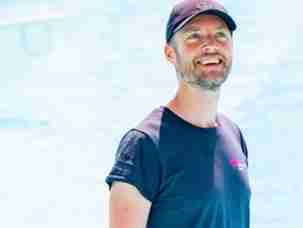 Stu Higgs
Stu Higgs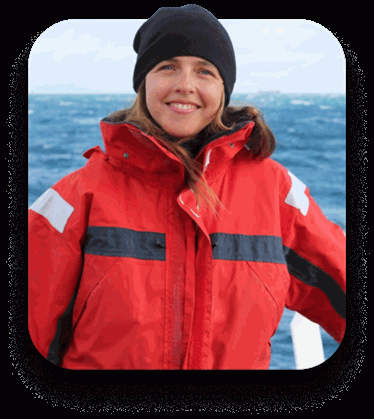 Patricia Puig
Patricia Puig Cristiano Pedroso-Roussado
Cristiano Pedroso-Roussado Loretta Kwok
Loretta Kwok Valentina Munoz Kortmann
Valentina Munoz Kortmann Chiara Certoma
Chiara Certoma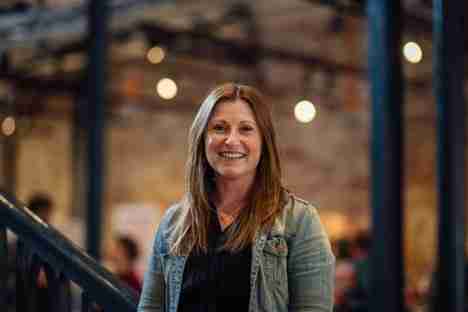 Hannah Harris
Hannah Harris Kizzy Beaumont
Kizzy Beaumont Alan Smith
Alan Smith Elaine Hayes
Elaine Hayes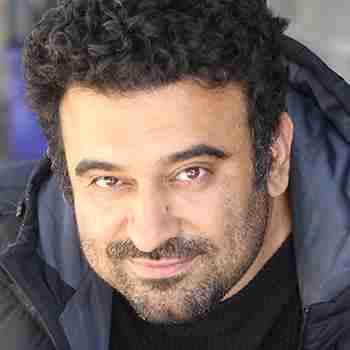 Taqi Shaheen
Taqi ShaheenRoundtable Time: 12:00 - 13:30 BRT (GMT-3)
Roundtable Organizers: Plymouth University
Amid escalating climate and biodiversity crises, it is increasingly recognised that individual citizens need not only an understanding of environmental issues, but also opportunities to actively engage with solutions. This engagement can be framed as a form of environmental or marine citizenship, which links personal responsibility to collective action. Research suggests that fostering meaningful connections between individuals and their local environment can help cultivate a sense of global responsibility that is locally expressed and realised. In this context, citizenship becomes a vital bridge between individual behavioural change and broader environmental outcomes. The use of creative methods and digital technologies can be particularly valuable in coastal and marine contexts. By fostering marine stewardship, influencing policy and management, building community capacity for addressing environmental concerns, it can create a broader impact on marine conservation. Creative and innovative approaches to engage with the sea and the marine environment can provide tools and resources for individuals to become active stewards of marine environments and play a significant role in fostering conservation efforts
The roundtable explored how we can engage people with the sea to foster marine citizenship. We heard from a range of different organisations and projects that have developed innovative and creative ways to engage and connect people and communities with the sea. They shared and exchanged best practice for using creative and innovative ways, including digital engagement as a pathway to marine citizenship. We explored what works, the impact it makes and the role of stakeholders. The outcome of the roundtable will give insight into how to foster marine citizenship through exploring creative and innovative approaches. Speakers included representatives of large organisations with innovative engagement programmes, international community led projects, university academics, city councils and creative industries organisations. They brought a range of perspectives as well as examples of best practice.
AGENDA
12:00 Moderator: Professor Katharine Willis, Welcome and brief introduction of the event, its objectives, the format of the event (roundtable discussion)
12:10 Panel discussion
12:40 Q&A
12.55 Wrap-up and Closing Remarks
ORGANIZERS:
Organiser: University of Plymouth (Faculty of Arts, Humanities and Business)
Organizing partners : Plymouth National Marine Park, Plymouth Culture
Contact person: Kizzy Beaumount/ Professor Katharine Willis /
Contact email: Katharine.willis@plymouth.ac.uk, Kizzy Beaumont kizzy.beaumont@plymouth.ac.uk
 November 18, 2025 15:00
November 18, 2025 15:00 Dr Mekhala Dave
Dr Mekhala Dave Damiens Nicolas
Damiens Nicolas Kevan Kalapnath Maharaj
Kevan Kalapnath Maharaj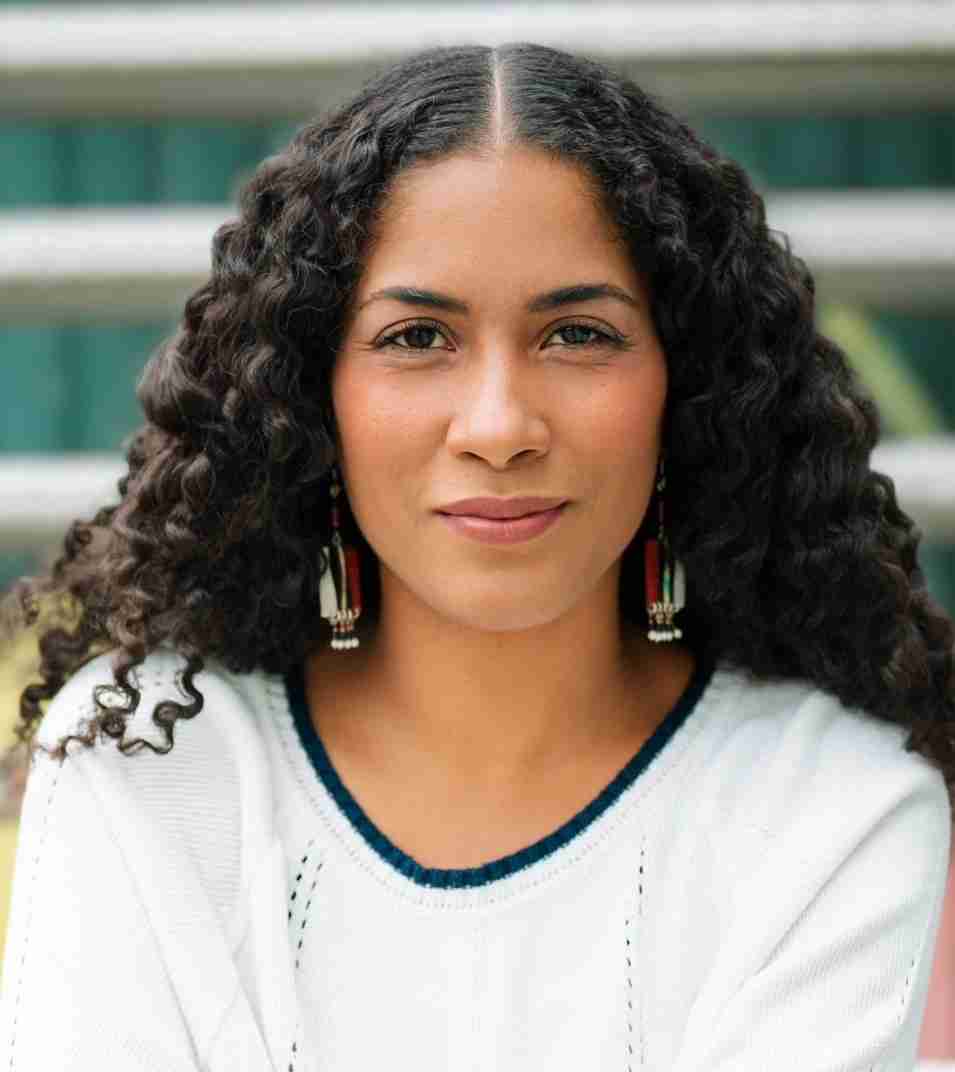 Barbara Luci Carvalho
Barbara Luci Carvalho Alexandre Da Silva
Alexandre Da Silva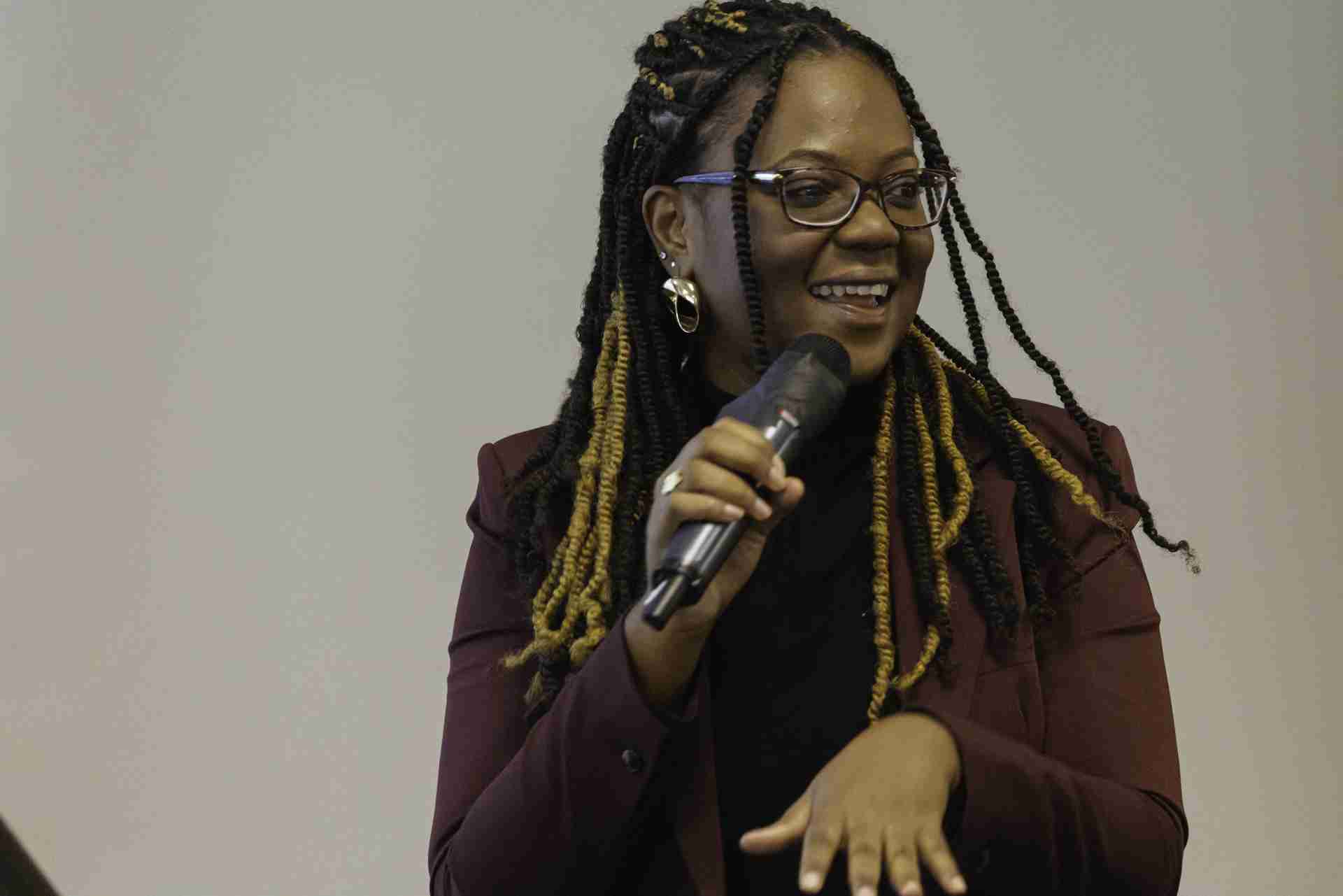 Khadija Stewart
Khadija Stewart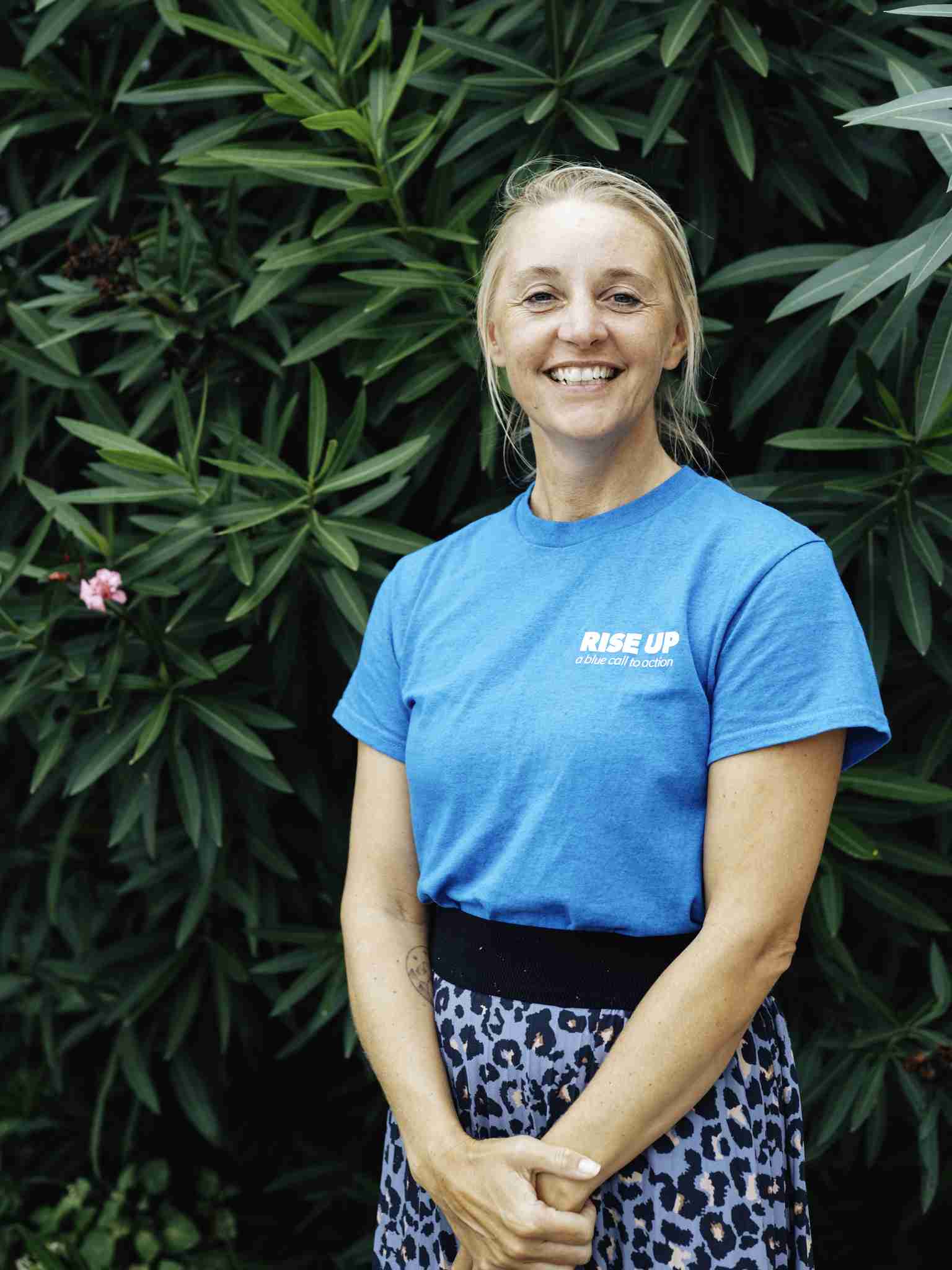 Natalie Fox
Natalie FoxEvent Time: 15:00 - 16:30 BRT (GMT-3)
Event Organizers: Rise Up For The Ocean (RISE UP)
This webinar spotlighted frontline ocean and climate solutions from Latin America and the Caribbean, treating the ocean as a borderless commons while confronting the colonial patterns that still shape who decides and who benefits. Speakers demonstrated how co-creation between traditional and local knowledge and science can protect biodiversity, strengthen livelihoods, and embed fairness in decision making. By braiding lived experience with monitoring and evaluation, the session translated what already works into models that can travel across places without losing integrity.
Our objectives are practical and action oriented. We showcased proven community led initiatives, surface methods for co design, joint monitoring, and community data stewardship, and defined enabling conditions such as Free, Prior and Informed Consent, social and ecological safeguards, open data practices, and fair benefit sharing. We also named policy, finance, and capacity barriers and share tested workarounds. The session closed by agreeing concrete next steps for cross regional collaboration, including candidate pilots, shared indicators, and an initial timeline to carry these solutions into national processes and global forums at the ocean climate nexus.
AGENDA
15:00 Welcome and Framing, Khadija Stewart, Senior Campaigner, RISE UP
15:02 Introduction to RISE UP, Natalie Fox, Engagement and Community Coordinator, RISE UP
15:07 Keynote: Why bridging science and traditional knowledge is essential and the need for decolonizing ocean governance, Dr. Mekhala Dave
15:17 Cross-regional Presentations
• Damiens Nicolas
• Alexandre da Silva
• Bárbara Luci Carvalho
• Kevan Kalapnath-Maharaj
16:07 Updates from COP 30 and Presentation Ocean and Climate Cluster
• Khadija Stewart
• Daniel Caceres Bartra
16:17 Audience Q&A
16:27 Closing remarks, Khadija Stewart
ORGANIZER:
RISE UP for the Ocean
 November 19, 2025 09:00
November 19, 2025 09:00 Karly Kelso
Karly Kelso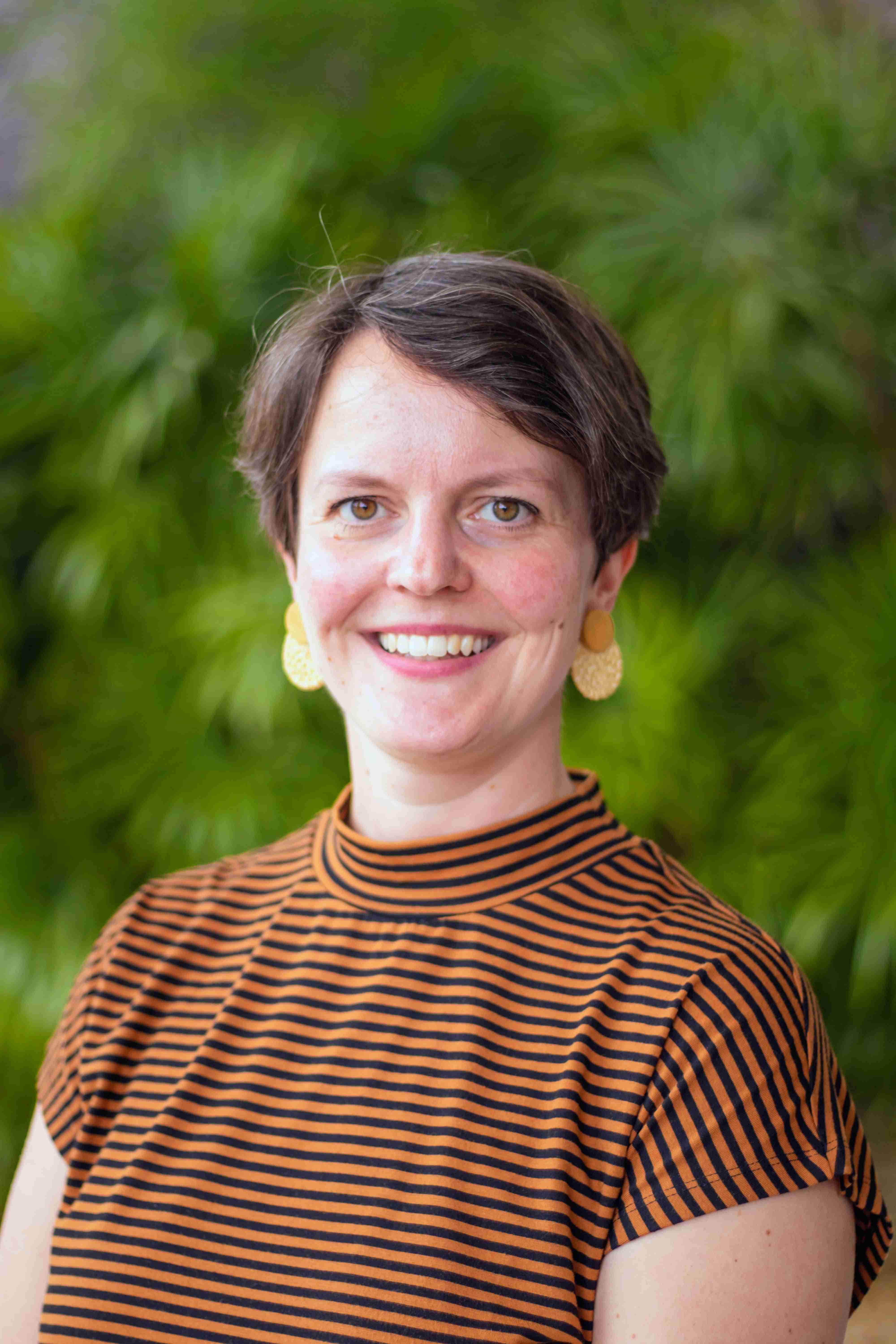 Michelle Tigchelaar
Michelle Tigchelaar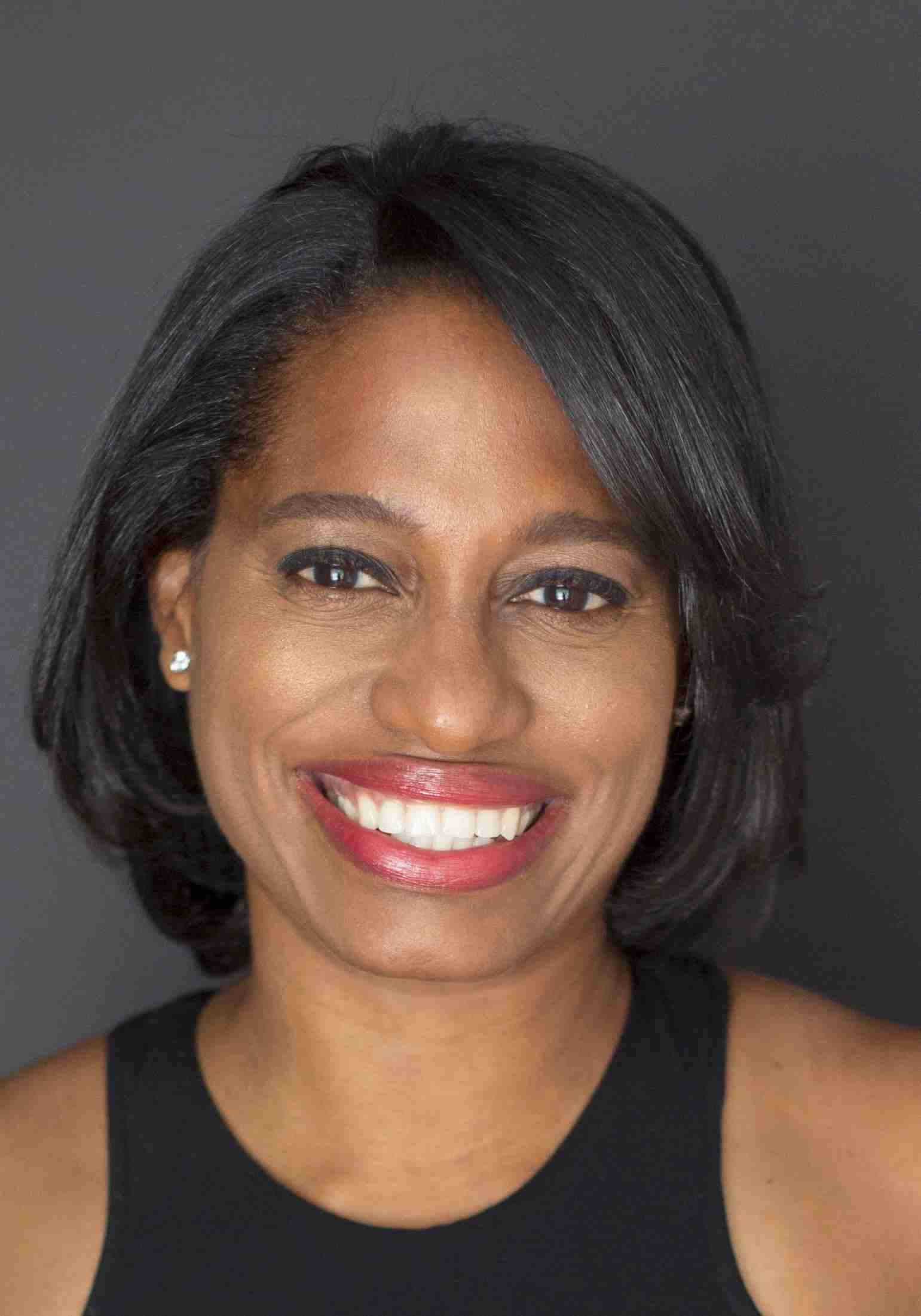 Juli-Anne Russo
Juli-Anne Russo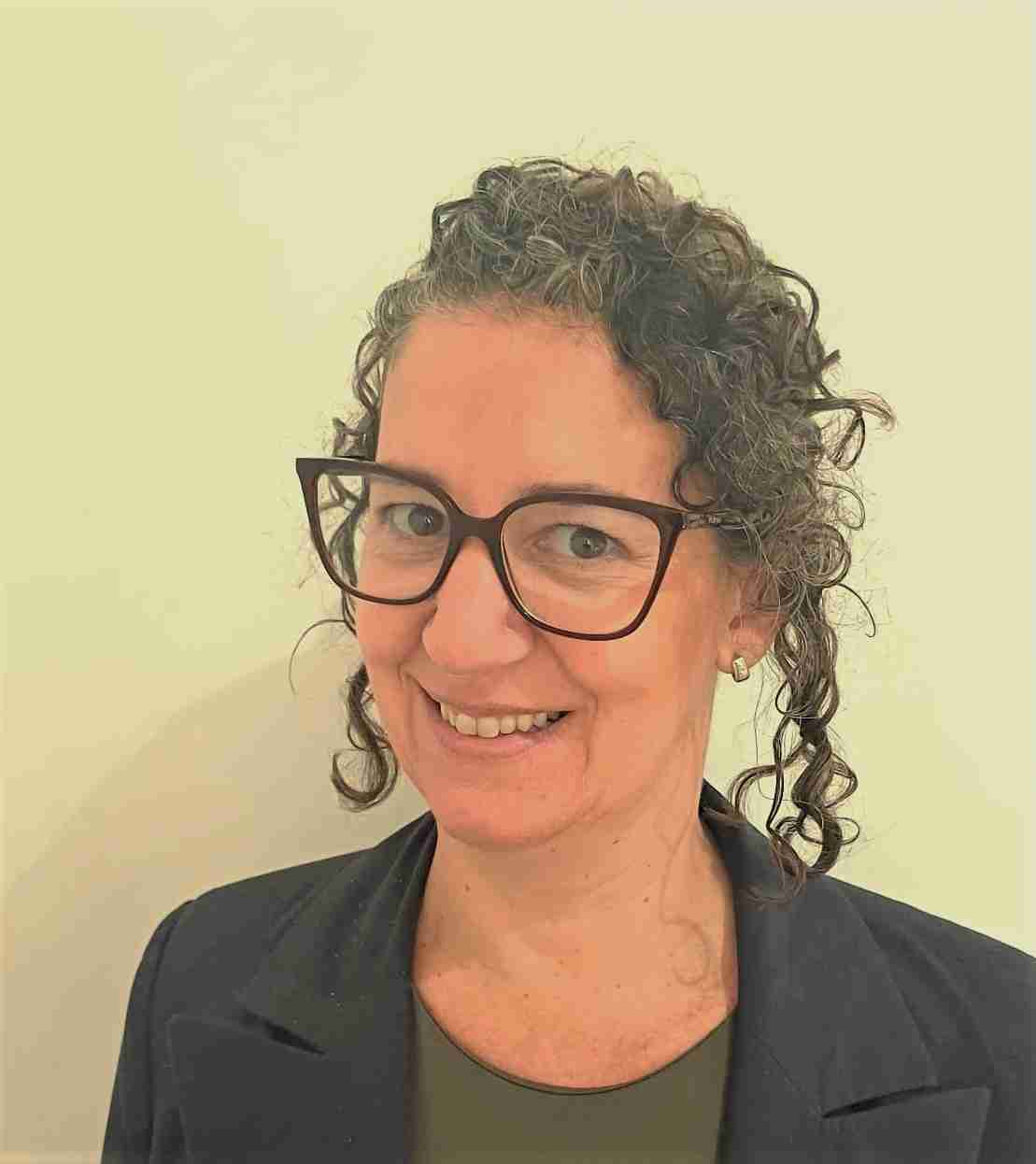 Fernanda Garcia Sampaio
Fernanda Garcia Sampaio Alina Mubashir
Alina Mubashir Xuechan Ma
Xuechan Ma Christina Zantioti
Christina Zantioti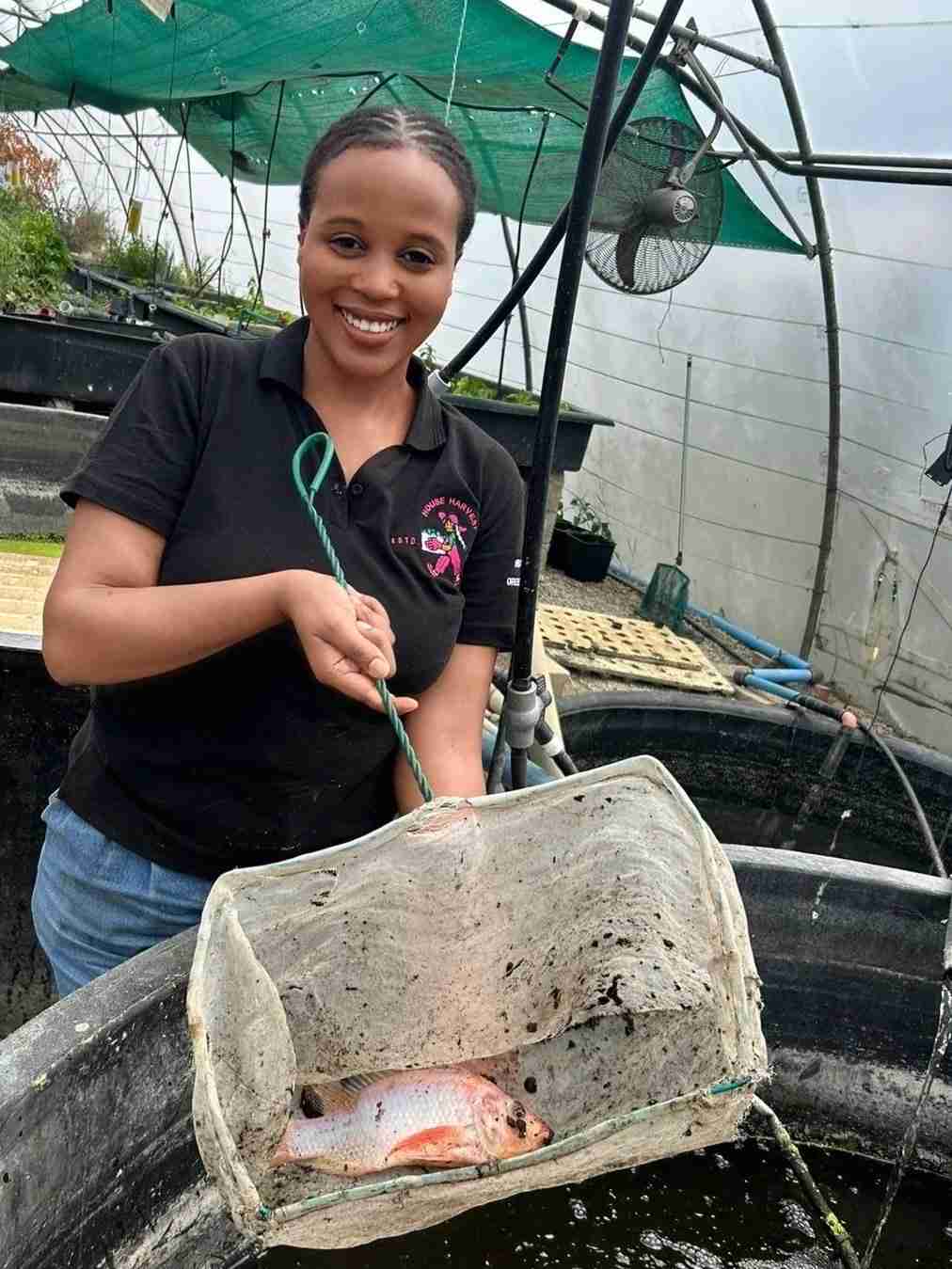 Gugulethu Mahlangu
Gugulethu Mahlangu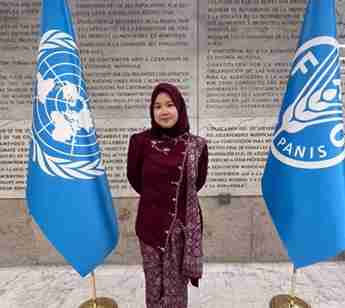 Ellena Kavarera
Ellena KavareraEvent Time: 9:00 - 10:30 BRT (GMT-3)
Event Organizer: Food and Agriculture Organization of the United Nations (FAO)
Youth represent a vital force in advancing sustainable and climate-resilient aquatic food systems. Despite their increasing engagement, many UNFCCC stakeholders remain unaware of the role of young fisheries and aquaculture actors in climate resilience. This event centered around an intergenerational dialogue to introduce the FAO Youth Constituency on Fisheries & Aquaculture, understand opportunities and challenges at the nexus of climate and aquatic food systems, and feature youth voices and initiatives around these issues.
The purpose of this session was to showcase youth leadership and initiatives in fisheries and aquaculture for strengthening climate action, raising awareness of the work of the FAO Youth Constituency on Fisheries and Aquaculture, and building inclusive partnerships for sustainable, resilient, and climate-resilient aquatic food systems.
The objectives of the session were to:
• Raise awareness about the FAO Youth Constituency and its mandate.
• Highlight how youth-led fisheries and aquaculture initiatives can and do contribute to climate change mitigation and adaptation.
• Identify partnership opportunities with youth climate networks.
The session was expected to lead to greater awareness of the FAO Youth Constituency among UNFCCC stakeholders, fostering stronger recognition of its potential to support climate action. It also aimed to facilitate new partnerships between youth networks that focus on climate and aquatic food system sustainability. Ultimately, these efforts will help amplify youth voices in climate dialogues, particularly related to fisheries and aquaculture.
AGENDA
● Welcome (Alina Mubashir, WFF Youth Policy Board)
● Keynote address (Xuechan Ma, Fishery Resources Officer, FAO)
● Intergenerational panel discussions:
○ Panel 1: Science and research
■ Michelle Tigchelaar, Senior Scientist & Impact Area Lead, WorldFish
■ Christina Zantioti, Co-Founder and President of the Network of Women in Aquaculture (NOWA)
○ Panel 2: Partnerships
■ Gugulethu Mahlangu, CEO, House Harvest and YOUNGO member
■ Juli-Anne Russo, Founder, Caribbean Aquaculture Education and Innovation Hub
○ Panel 3: Policy and governance
■ Ives Feitosa Duarte, Technical analyst, National Secretariat of Aquaculture, Ministry of Fisheries and Aquaculture of Brazil
■ Karly Kelso, Acting Senior Director, Global Ocean Strategies, EDF
● Reflections, next steps and closing remarks:
○ Ellena Kavarera, Head of the Home Bureau Department, Indonesian Coastal Youth Union
○ Fernanda Sampaio, Researcher, Office of International Relations, Brazilian Agricultural Research Corporation (Empraba)
● Close of the session (Alina Mubashir, WFF Youth Policy Board)
ORGANIZERS:
● FAO; Environmental Defense Fund; WorldFish
 November 19, 2025 12:00
November 19, 2025 12:00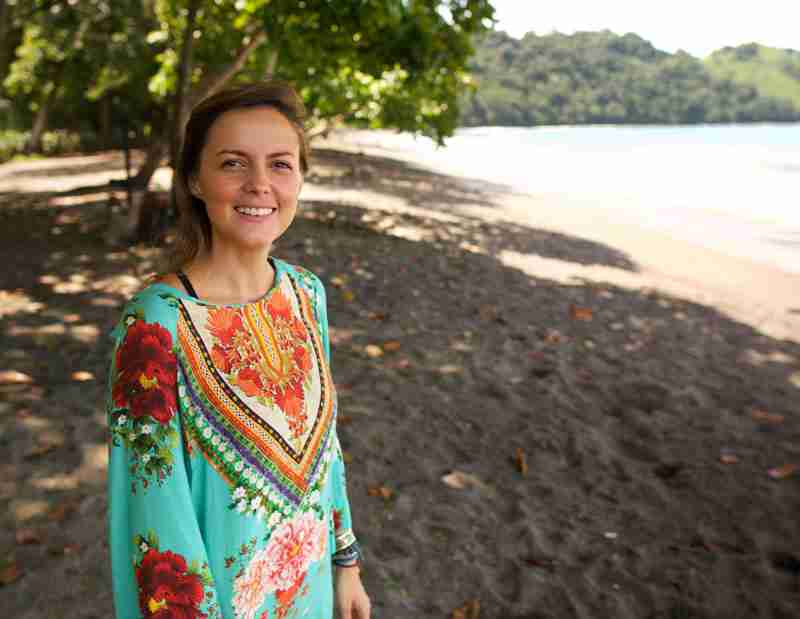 Juliana Corrales
Juliana Corrales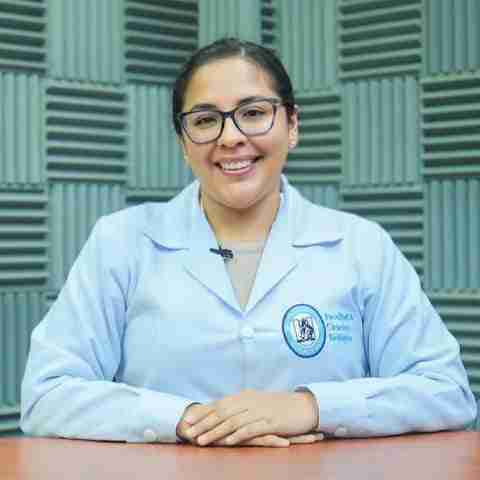 Natalie Bravo Senmache
Natalie Bravo Senmache Ms. Monika Naranjo-Shepherd
Ms. Monika Naranjo-Shepherd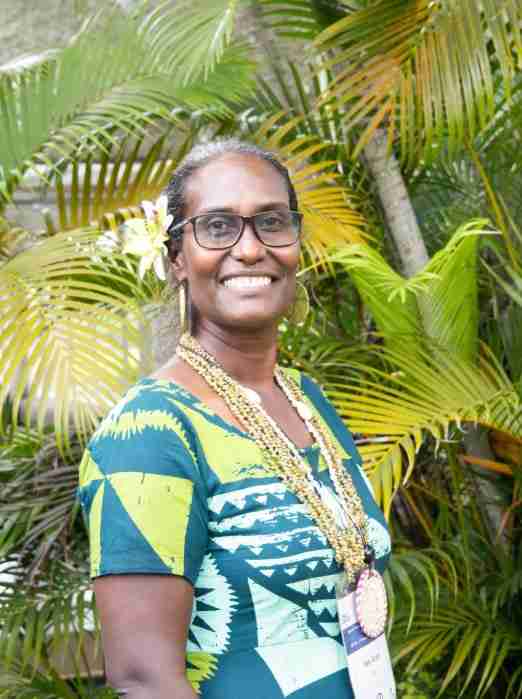 Dr. Katy Soapi
Dr. Katy Soapi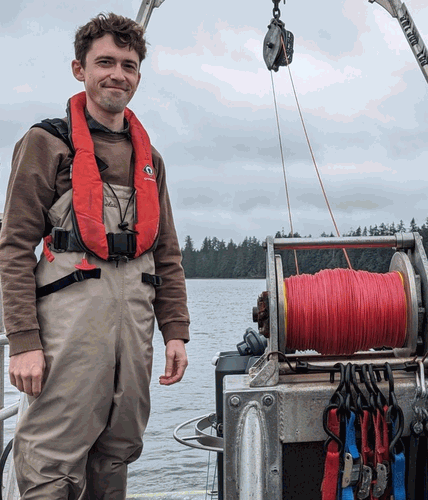 Dr. Micah Horwith
Dr. Micah Horwith Mr. Anthony Bitegeko
Mr. Anthony BitegekoEvent Time: 12:00 - 13:30 BRT (GMT-3)
Event Organizers: Ocean Acidification (OA) Alliance
Ocean acidification is an invisible impact of climate change and carbon on our ocean.
This event featured the virtual premiere of “Changing Waters: Time for Action on Ocean Acidification,” a character-led short film which follows real individuals including government leaders, indigenous communities, seafood industry and scientists who are responding to the accelerating impacts of ocean acidification and calling for action.
Filmed in North America, Latin America and the Pacific Island Region, the film uses personal storytelling and on-the-ground projects to highlight ocean acidification science and policy leadership. It also explores global equity issues when it comes to assessing risks and responding to acidification with local solutions. The film aims to inspire broader awareness of this work and accelerate action at a critical moment for climate policy and financing.
The virtual premiere was followed by a short roundtable with the filmmaker as well as science and policy leaders featured in the film representing the international communities of practice.
AGENDA
12:00 Opening Presentations
Ms. Natalie Bravo Senmache, What is ocean acidification and why should we care?
Ms. Juliana Corrales, Communicating for action on ocean acidification
12:10 Premiere of “Changing Waters: Time for Action on Ocean Acidification”
Ms. Juliana Corrales, Introduction to the film
12:30 Roundtable discussion on science, policy and finance of ocean acidification in the Pacific
Moderator: Ms. Juliana Corrales
Monika Naranjo-Shepherd
Dr. Katy Soapi
Dr. Cesar Bernal
Chris Martinez
Micah Horwith
13:00 Q&A with attendees
Moderator: Ms. Juliana Corrales
ORGANIZER:
International Alliance to Combat Ocean Acidification (OA Alliance)
 November 19, 2025 19:00
November 19, 2025 19:00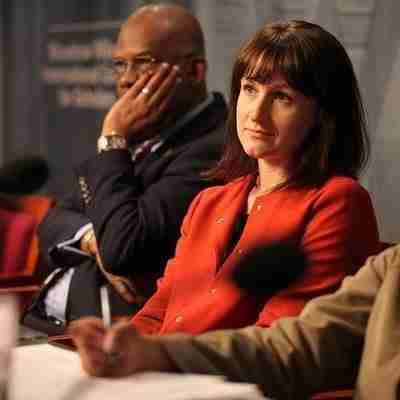 Eliza Northrop
Eliza Northrop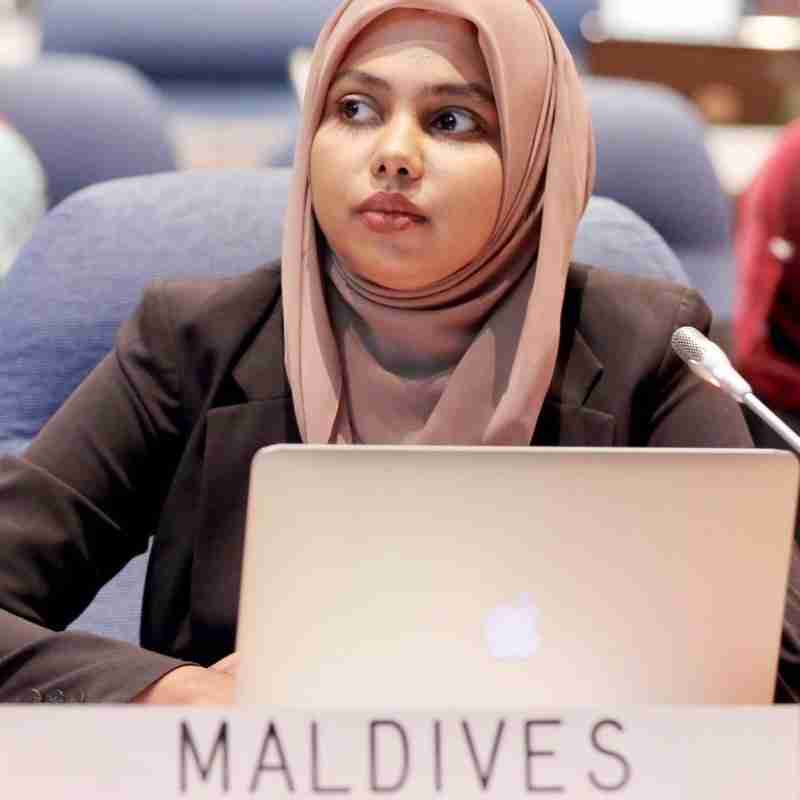 Lisama Sabry
Lisama Sabry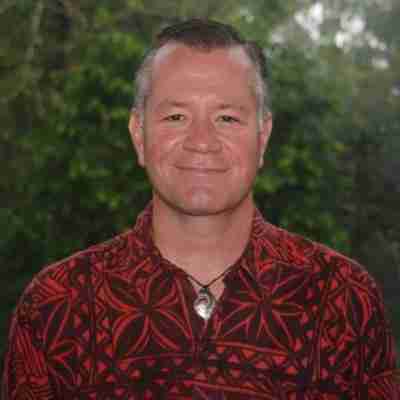 Espen Ronneberg
Espen Ronneberg Annike Faure
Annike Faure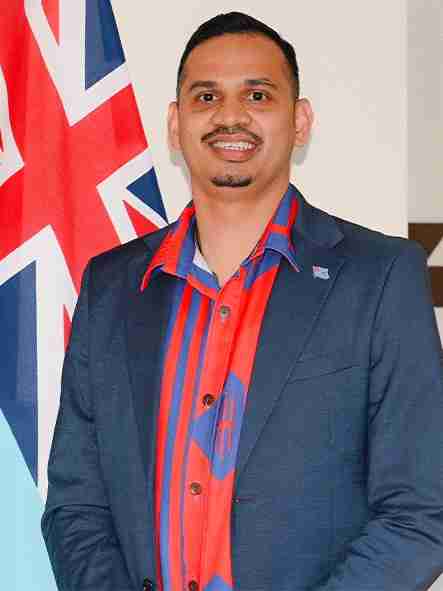 Dr. Sivendra Michael
Dr. Sivendra MichaelEvent Time: 19:00 - 20:30 BRT (GMT-3)
Event Organizers: University of New South Wales (UNSW)
New analysis from the University of New South Wales reveals that countries are dramatically scaling up their ocean-climate ambitions. The 72 new or updated Nationally Determined Contributions (NDCs) submitted ahead of COP30 contain 461 ocean-based climate actions—a remarkable 71% increase from the previous round.
This event launched this analysis and explored what this means for our climate and biodiversity action over the next few years.
Panellists from Big Ocean States addressed the following:
• How these new commitments could shape priorities for three pivotal upcoming events: the 2026 Ocean-Climate Dialogue, UNFCCC COP31, and CBD COP17
• Identifying concrete implementation priorities and untapped opportunities for investment and collaboration over the coming years
• Exploring how ocean accounts can serve as a foundational data framework for tracking progress
This timely conversation directly advances the political declaration "Our ocean, our future: united for urgent action" from the 3rd United Nations Ocean Conference, moving from commitment to action.
AGENDA
19:00 Moderator: Eliza Northrop, Welcome and Introduction of the event
19:05 Presentation on Ocean-based Climate Action in NDCs and NBSAPs (Eliza Northrop)
19:25 Panel discussion
20:15 Q&A
20:25 Eliza Northrop, Wrap-up and Closing Remarks
ORGANIZER: UNSW Centre for Sustainable Development Reform
 November 20, 2025 09:30
November 20, 2025 09:30 Sylvain Taboni
Sylvain Taboni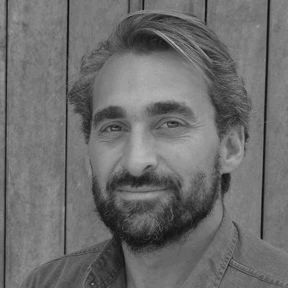 Nicolas Pascal
Nicolas Pascal Célia Berche
Célia Berche Raphaël Ghiandai
Raphaël Ghiandai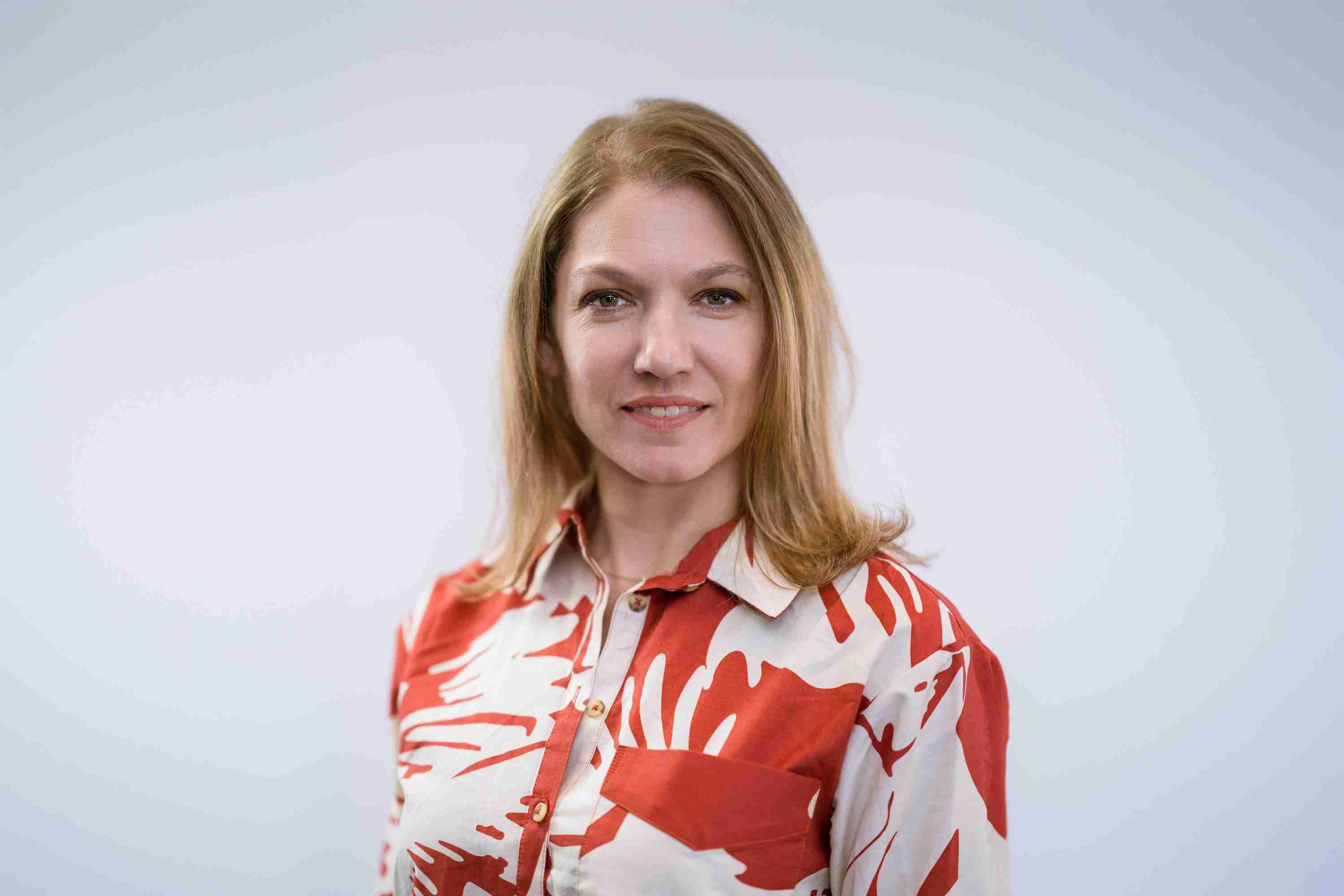 Ashleigh McGovern
Ashleigh McGovern Marianne Carpentier
Marianne CarpentierEvent Time: 9:30 - 10:30 BRT (GMT-3)
Event Organizers: BNP Paribas
How can we invest in the ocean to build a true sustainable blue economy? While the ocean plays a critical role in regulating our climate and supporting biodiversity and the livelihoods of billions of people on the planet, the blue economy is still lacking in investment to reach its full potential.
In this panel discussion, key sector players showcased approaches that combine conservation activities and development, as well as share the lessons learned from innovative projects that have the potential to attract both private and public capital at scale.
ORGANIZER: BNP Paribas
 November 20, 2025 12:00
November 20, 2025 12:00 Dr. David Freestone
Dr. David Freestone Mr. Vladimir Jares
Mr. Vladimir Jares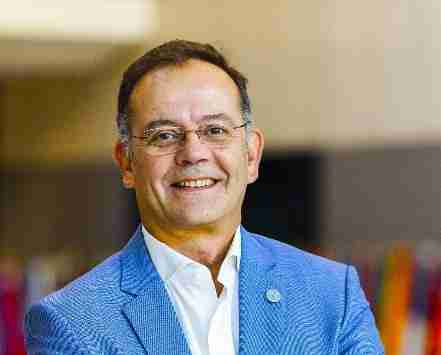 Prof. Manuel Barange
Prof. Manuel Barange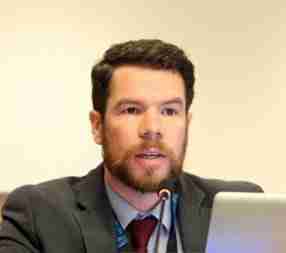 Dr. Joseph Appiott
Dr. Joseph Appiott Ms. Kristina Gjerde
Ms. Kristina Gjerde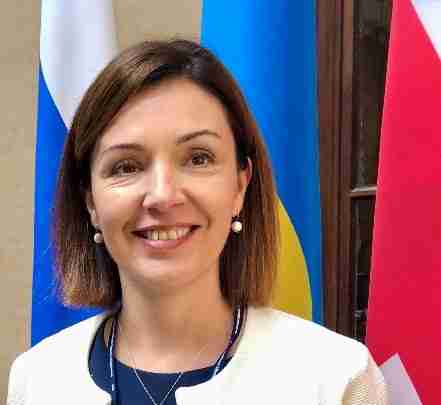 Ms. Viktoria Varga-Lencses
Ms. Viktoria Varga-Lencses Ms. Azela Arumpac
Ms. Azela Arumpac Ms. Catie Mitchell
Ms. Catie Mitchell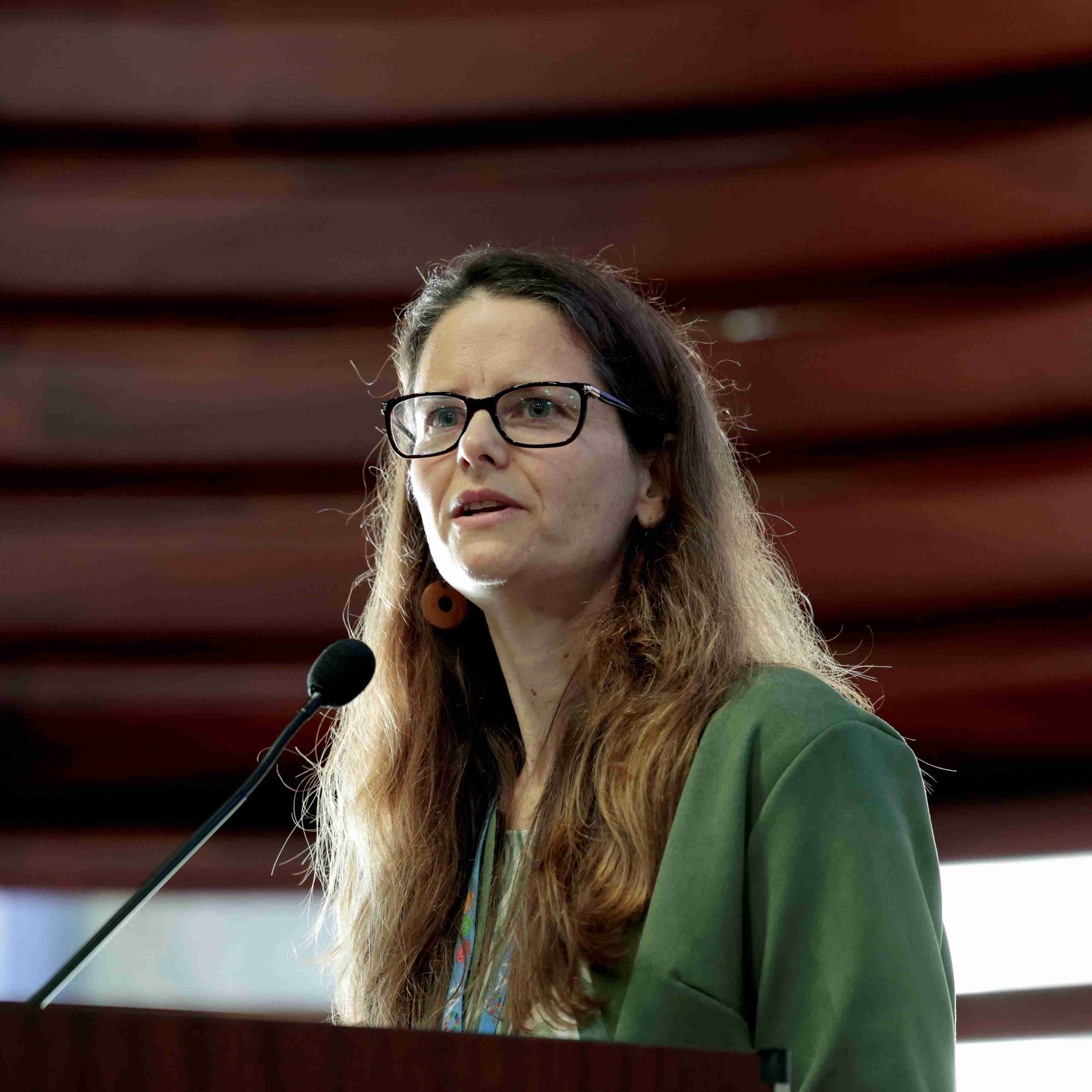 Ms. Eszter Hidas
Ms. Eszter Hidas Laura Khatib Lakiss
Laura Khatib Lakiss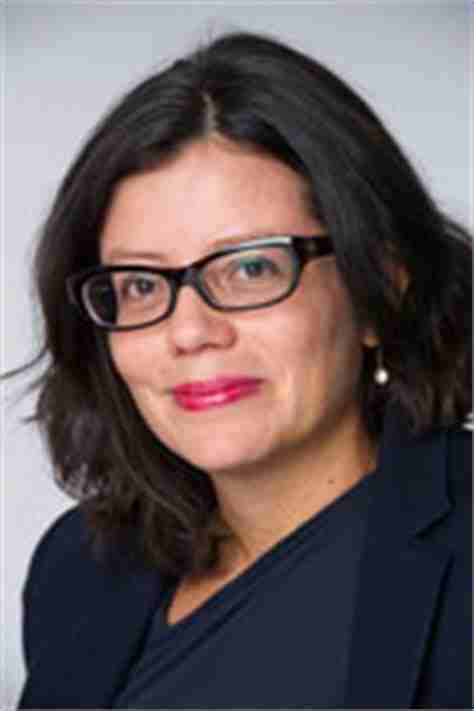 Ambassador Janine Coye-Felson
Ambassador Janine Coye-FelsonEvent Time: 12:00 - 13:45 BRT (GMT-3)
Event Organizers: Global Ocean Forum & Plymouth Marine Laboratory
Ocean action cannot be siloed. The ocean creates a “blue thread” across climate and biodiversity agendas and is critical to both the Paris Agreement and the Global Biodiversity Framework. COP30, as a “Nature COP,” must build synergies across the UNFCCC, the Convention on Biological Diversity, the Agreement on Marine Biological Diversity of Areas beyond National Jurisdiction (BBNJ Agreement), and other relevant frameworks to advance ocean-based climate action.
Aligning goals and indicators, leveraging integrated solutions, and enhancing institutional coordination across these frameworks will establish policy coherence and maximize impact. Strong multilateralism, including support for developing countries and small island developing States (SIDS) as well as public education and stakeholder outreach are key to driving collective progress.
Panelists and speakers will discuss the challenges of effective collaboration and coordination in the face of complex issues. Key discussion areas will include how to achieve integrated action, develop, enhance, and maintain policy alignment across different sectors, improve institutional cooperation, foster multilateral approaches, ensure inclusive engagement, and build necessary scientific and technical expertise.
AGENDA:
12:00 Welcome and introduction, Dr. David Freestone, Executive Secretary, Sargasso Sea Commission (Master of Ceremony)
12:05 Keynote Address, Ambassador Janine Coye-Felson, Permanent Representative of Belize to the United Nations in New York; Co-chair of the Preparatory Commission for the BBNJ Agreement
12:10 Panel Discussion 1: The BBNJ Agreement is a Climate Agreement: Prospects and challenges (35 minutes)
Discussion question:
The main challenge to the claim that the BBNJ Agreement is a climate agreement is that its primary and explicit purposes are marine biodiversity conservation and sustainable use of resources, not climate change mitigation or adaptation. While it strongly addresses the impacts of climate change on the ocean and can aid climate action, its scope and legal mechanisms focus on the effects of environmental stress rather than regulating greenhouse gas emissions. What are the prospects and challenges in fostering cross-sectoral policy discourse and policy development to advance the use of and maximize the impact of ocean-based solutions to climate change through the BBNJ Agreement?
12:10 Moderator introduction, Dr. David Freestone, Executive Secretary, Sargasso Sea Commission
12:15 Panelist interventions: (5 minutes each)
• Mr. Vladimir Jares, Director, UN Division for Ocean Affairs and the Law of the Sea
• Prof. Manuel Barange, Assistant Director General and Director of the Fisheries and Aquaculture Division, Food and Agriculture Organization of the United Nations (FAO)
• Dr. Joseph Appiott, Coordinator for Marine, Coastal and Island Biodiversity, Convention on Biological Diversity Secretariat
• Ms. Kristina Gjerde, Senior High Seas Advisor, IUCN
12:35 Discussion with panelists and Q&A with the audience (10 minutes)
12:45 Panel Discussion 2: Implementing the BBNJ Agreement: Technical challenges on the way forward (35 minutes)
12:55 Moderator introduction, Ms. Viktoria Varga-Lencses, Senior Fishery Officer, FAO - Global Coordinator, Common Oceans Program
13:00 Panelist interventions: (5 minutes each)
• Dr. David Freestone, Executive Secretary, Sargasso Sea Commission, What technical challenges are to be expected in the development of detailed rules for the Agreement's four core elements and in establishing its subsidiary bodies?
• Ms. Eszter Hidas, Manager/Technical Advisor, Common Oceans Deep-Sea Fisheries Project, FAO, What guidance will be needed by member States in developing and implementing cooperation arrangements with existing international frameworks and bodies?
• Ms. Azela Arumpac, First Secretary and Legal Adviser, Permanent Mission of the Philippines to the United Nations in New York, What are your perspectives on the way forward in addressing limited technical and financial capacity in many member States, particularly small island developing States (SIDS) and the need for practical operational guidance for concepts like digital sequence information on marine genetic resources or strategic environmental assessment?
13:15 Discussion with panelists and Q&A with the audience (15 minutes)
13:30 COP30 Virtual Ocean Pavilion post-event report, Ms. Catie Mitchell, Global Ocean Forum (7 minutes)
13:37 Closing Remarks, Dr. David Freestone, Master of Ceremony (3 minutes)
13:40 Call to Action, Ms. Laura Khatib, Co-Founder, Guardians of the Blue, Lebanon, and representative of the Early Career Ocean Professionals (ECOP) Programme (5 minutes)
ORGANIZERS:
Global Ocean Forum and Plymouth Marine Laboratory
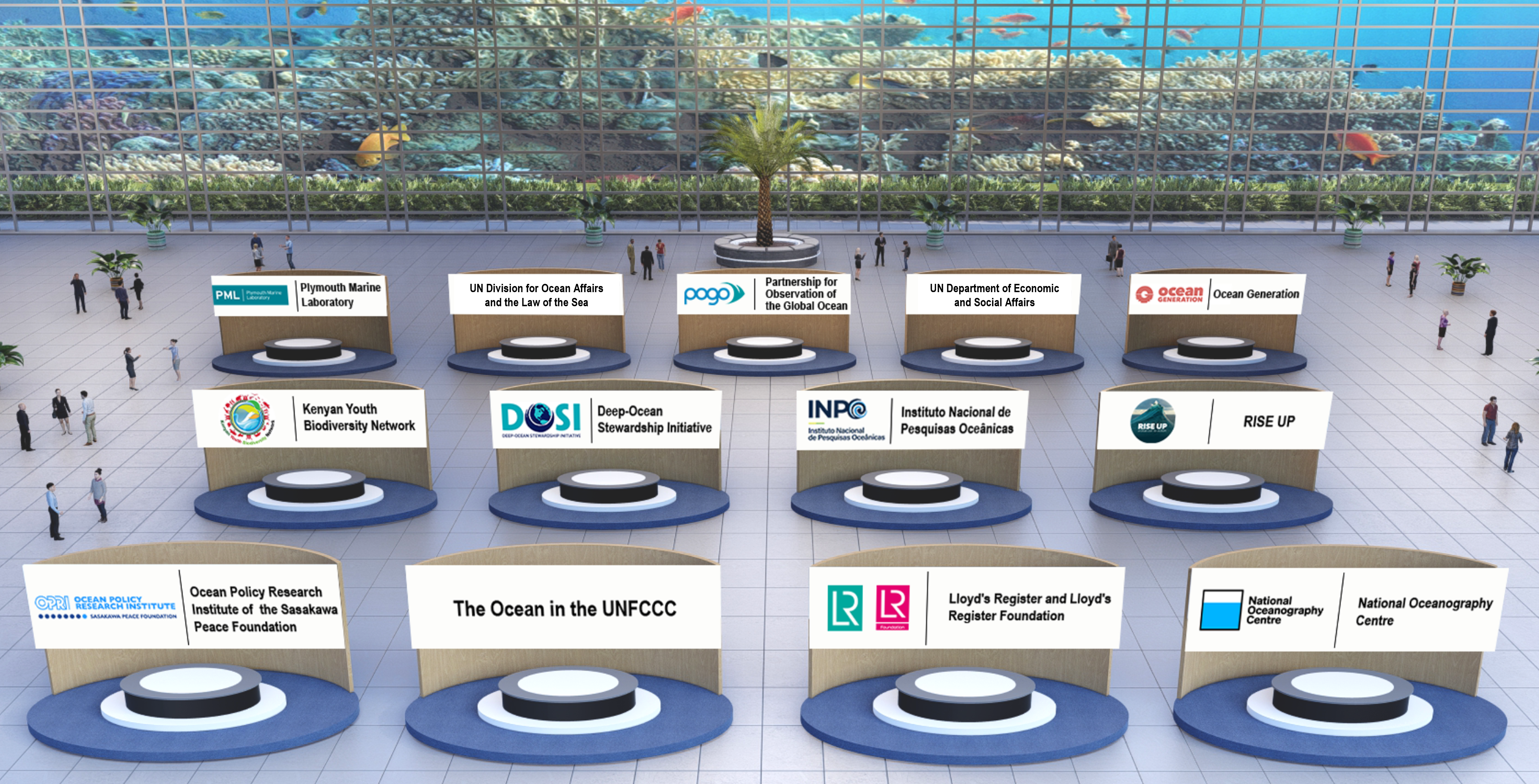
Plan to visit one of thirteen ocean exhibition booths organized by leading ocean and climate organizations to showcase new and ongoing ocean-climate-biodiversity initiatives. Take advantage of the free access to a wealth of information that can be ‘taken away’ in your virtual delegate bag.
Each exhibition booth will be featured on the Pavilion platform during a spotlight date. On the spotlight date, head to the Treasure Trove to learn more about the featured booth, find ways to connect with booth representatives, and test your knowledge ocean and climate knowledge with booth-related trivia.
| Exhibitor | Spotlight Date |
|---|---|
| The Ocean in the UNFCCC | 4 November |
| Ocean Policy Research Institute - Sasakawa Peace Foundation | 5 November |
| UN Department of Economic and Social Affairs | 6 November |
| Ocean Generation | 7 November |
| Lloyd's Register and Lloyd's Register Foundation | 10 November |
| RISE UP | 11 November |
| National Oceanography Centre | 12 November |
| Kenyan Youth Biodiversity Network | 13 November |
| Plymouth Marine Laboratory | 14 November |
|
Deep-Ocean Stewardship Initiative |
17 November |
| Instituto Nacional de Pesquisas Oceânicas | 18 November |
| UN Division for Ocean Affairs and the Law of the Sea | 19 November |
| Partnership for Observation of the Global Ocean | 20 November |
This year, the COP30 Virtual Ocean Pavilion will be organizing a virtual exhibit on "The Ocean in the UNFCCC", which will be a permanent exhibit at the Pavilion updated every year in collaboration with key partners. In keeping with the Virtual Ocean Pavilion's goal of “bringing the COP to the world and the world to the COP,” this exhibit will: